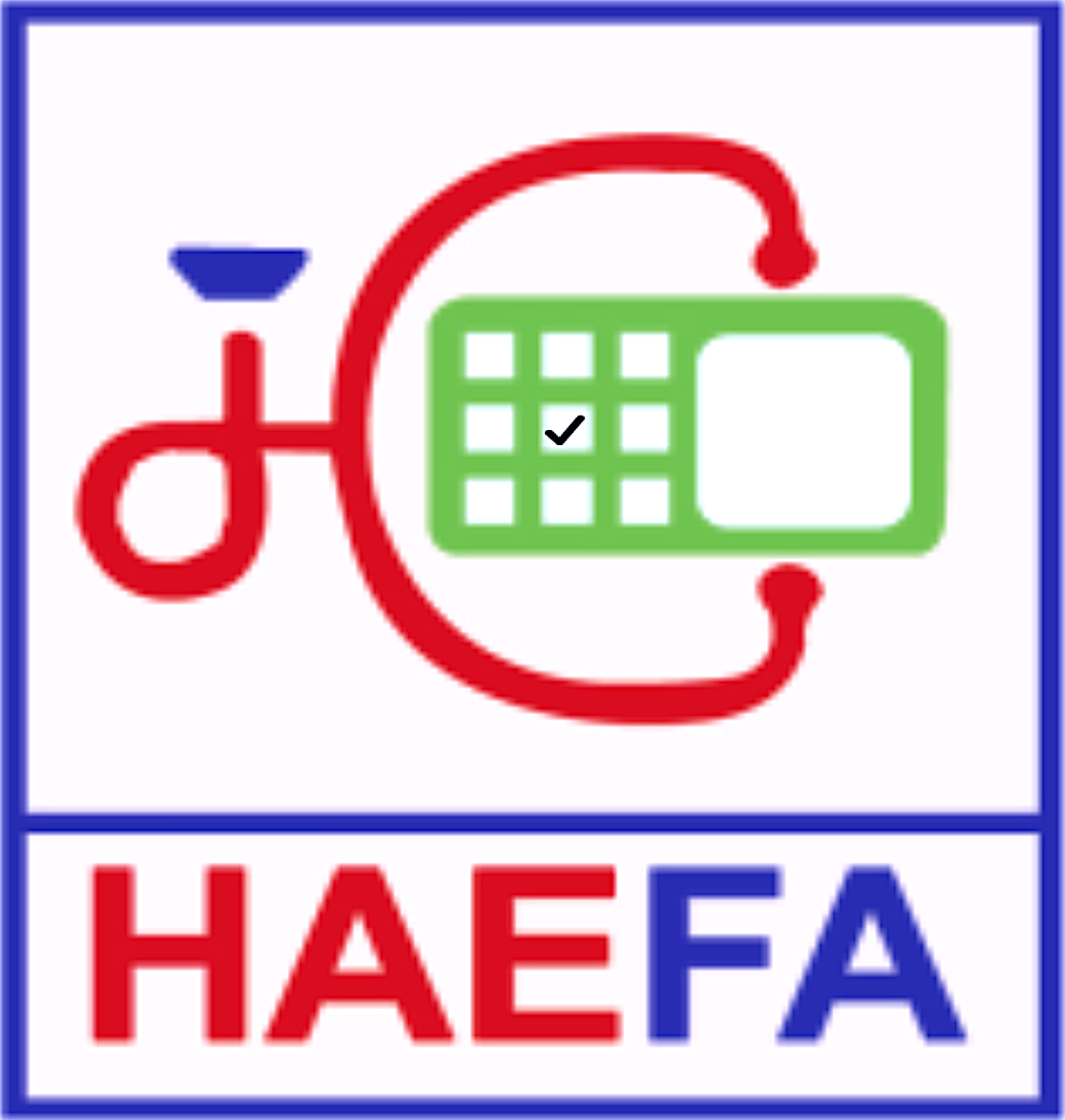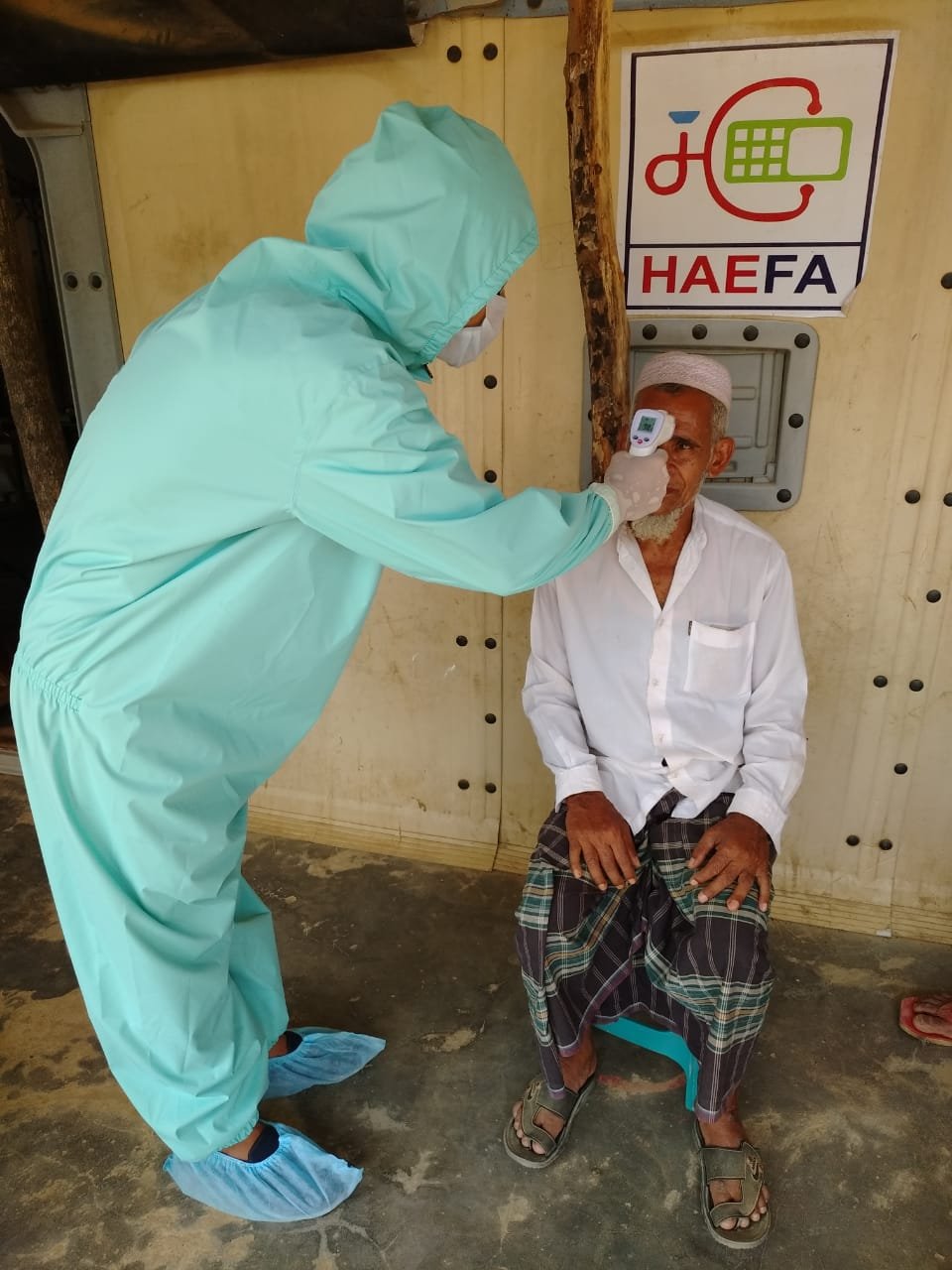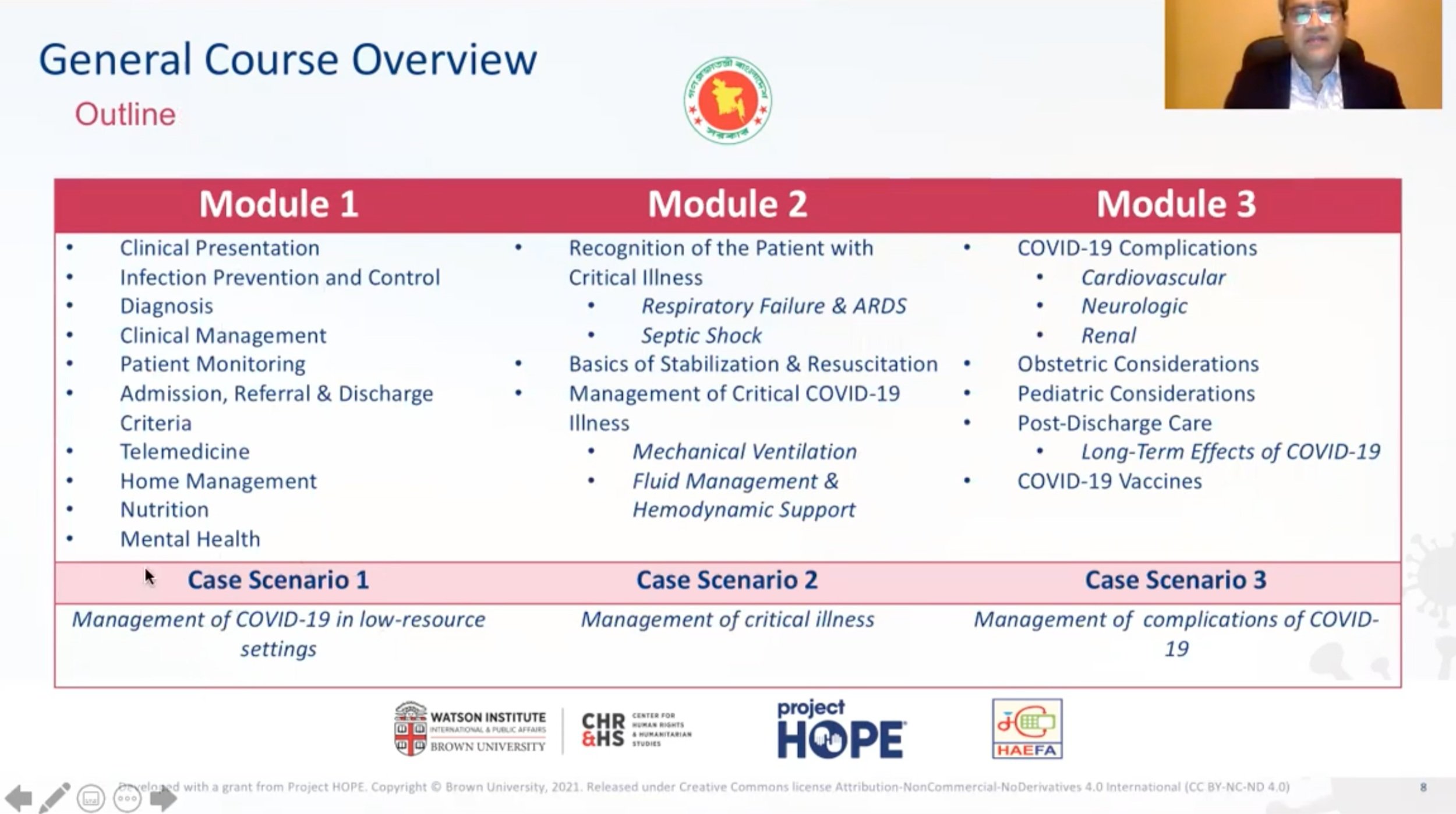On May 15, 2020, COVID-19 was confirmed inside Rohingya Refugee camps
Overcrowding, insufficient sanitation and poor nutrition make refugees highly vulnerable to COVID-19 infection and mortality. without intervention, the virus will devastate these populations.
If we can protect the medical professionals, we can protect the whole population. They’re like frontline soldiers.
-Ruhul Abid MD, PhD
Overview
On May 15th, 2020, two cases of COVID-19 were confirmed in the Rohingya camps.
As of July 4th, 2021, in the Cox’s Bazar there have been
10,612 COVID-19 cases
110 COVID-19 deaths
HAEFA and other aid agencies are doing everything they can to combat the massive outbreak of COVID-19 in the camps.
This means YOUR support is all the more urgently needed to help HAEFA’s doctors to fight coronavirus. Please donate to supply healthcare professionals with essential protective equipment– gloves, masks, and PPE. In the overcrowded conditions of the camp, access to this equipment will be essential for HAEFA professionals fighting to lower mortality rates in the refugee population.
A High-Risk Population
Rohingya refugees have high rates of noncommunicable and chronic diseases which put them at higher risk for severe COVID-19 illness, hospitalization, and mortality.
The 1983 Myanmar Citizenship Act stripped Rohingya people of their citizenship and prevented them from accessing healthcare for nearly 40 years.
22.8% of the community is considered an at-risk population, translating to nearly 200,000 at-risk people living under 13 square kilometers.
Latest Updates
Testing Status as of August 1st, 2022
Host Test: 217, 938. | Positive: 25, 275 | Positivity Rate: 11.6%
FDMN Test: 107,412 | Positive: 6,426 | Positivity Rate: 5.85%
To find up-to-date statistics, please consult WHO’s Cox’s Bazar COVID-19 Dynamic Dashboard
The Current Situation
According to the WHO’s Health Sector Bulletin- Quarter 1/2022, COVID-19 is still a primary health issue as Bangladesh experienced a surge in COVID-19 infection in 2022 driven by the Omicron variant. As of 31 March 2022, Bangladesh has recorded more than 1.9 million cases and 29,000 deaths.
Despite the rise in infection rate through Jan-March 2022, the COVID-19 Case Fatality Rate (CFR) among the FDMN/Rohingya refugees was low, estimated at 0.3% (WHO Surveillance Data, Jan-March 2022). Compared to the delta wave in Q3/2021, this CFR associated with the Omicron surge was remarkably low, in keeping with trends.
HAEFA continues to support COVID-19 Community Based Surveillance and to educate, encourage, and mobilize the community to get vaccinated.
Please consider donating to continue to support our frontline workers.
HEAFA’s Emergency Response
HAEFA immediately pivoted to address the presence of covid-19 within the community.
Contact tracing, Symptom monitoring, treatment, and vaccinations
Contact tracing and symptom monitoring systems were established to help reduce the spread of the virus. NIROG has proved an essential asset in tracking the spread of COVID-19 through the camps and monitoring patients' symptoms.
Patients with Covid-19-like symptoms were treated under home quarantine. Five dedicated volunteers of HAEFA headed the symptom monitoring and contact tracing efforts by checking in on every patient with a fever or cough three times per week. This was done via phone interview for a period of 2 weeks.
Once vaccines became available in Bangledesh, HAEFA also began to provide COVID-19 vaccination to the Rohingya people in Bhashan Char, Ukhia, and Teknaf.
Equipment support and donations
At the start of the pandemic, HAEFA staff distributed protective health and hygiene packages to over 200 families, which include face masks, bar soaps, washing aprons, and toilet brushes.
HAEFA has also sourced and imported 10,000 KN95 masks for free distribution in national hospitals & rural health centers in 20 Bangladeshi districts and has sent $89,000 to support healthcare workers and patients' safety.
HAEFA Bangladesh provided 7 Oxygen cylinders on an emergency basis to help COVID-19 patients in Sirajdikhan Upazila Health complex, Munshiganj on September 3, 2021.
community engagement and Food Assistance
HAEFA staff advocate for preventive measures such as mask-wearing, hand washing, testing, and vaccinations to increase awareness and reduce infections within the community.
Moreover, HAEFA went beyond healthcare to support the community. Due to the pandemic, many families are unable to provide food to their children due to lost jobs or significant reductions in income. In 2021, due to COVID-19-related lockdowns, an additional 24.5 million people went below the poverty line in Bangladesh.
During 2020, HAEFA delivered 750+ food packages to underserved families and those impacted by COVID-19, just before Eid. Among them, we found a couple who were initially school teachers, but are now selling groceries on a vending cart to earn a living. Another couple lost their job as restaurant managers due to lockdown.
Read More About COVID-19 Related Job Loss and Hunger in Bangladesh: here and here
Education and Training
COVID-19 Competency TOT training
Utilizing a Training of Trainers (ToT) model, a 4-day COVID-19 training program for healthcare workers has been developed and administered by Brown University and Project HOPE, facilitated by HAEFA. 75 healthcare workers from over 20 different organizations were directly trained. The next wave of training facilitated by HAEFA will prepare 3,000 healthcare workers to combat COVID-19 efficiently and protect themselves.
The training taught and evaluated core competencies, including biology and transmission mechanisms; infection prevention and control; contact tracing; screening and triage; diagnosis and management; stabilization and resuscitation; health facility operations and surge capacity; and risk communication and public health messaging.
The ToT program was administered via Zoom in April, 2020
Read more here
Advanced COVID-19 Clinical Management Certification Course
HAEFA has developed and launched a new, web-based, interactive Advanced COVID-19 Clinical Management Certification Course on the DGHS website with the major goal to help physicians acquire a standardized COVID-19 management and treatment protocol in a convenient, self-paced manner.
The course consists of 3 interactive modules, each of which contains pre-recorded videos about the clinical management of Covid-19 patients and an exam based on interactive case scenarios.
As of April 2022, over 3,000 physicians in Bangladesh have achieved the certificate.
Read more here
Photo Gallery of HAEFA’s COVID-19 Assistance
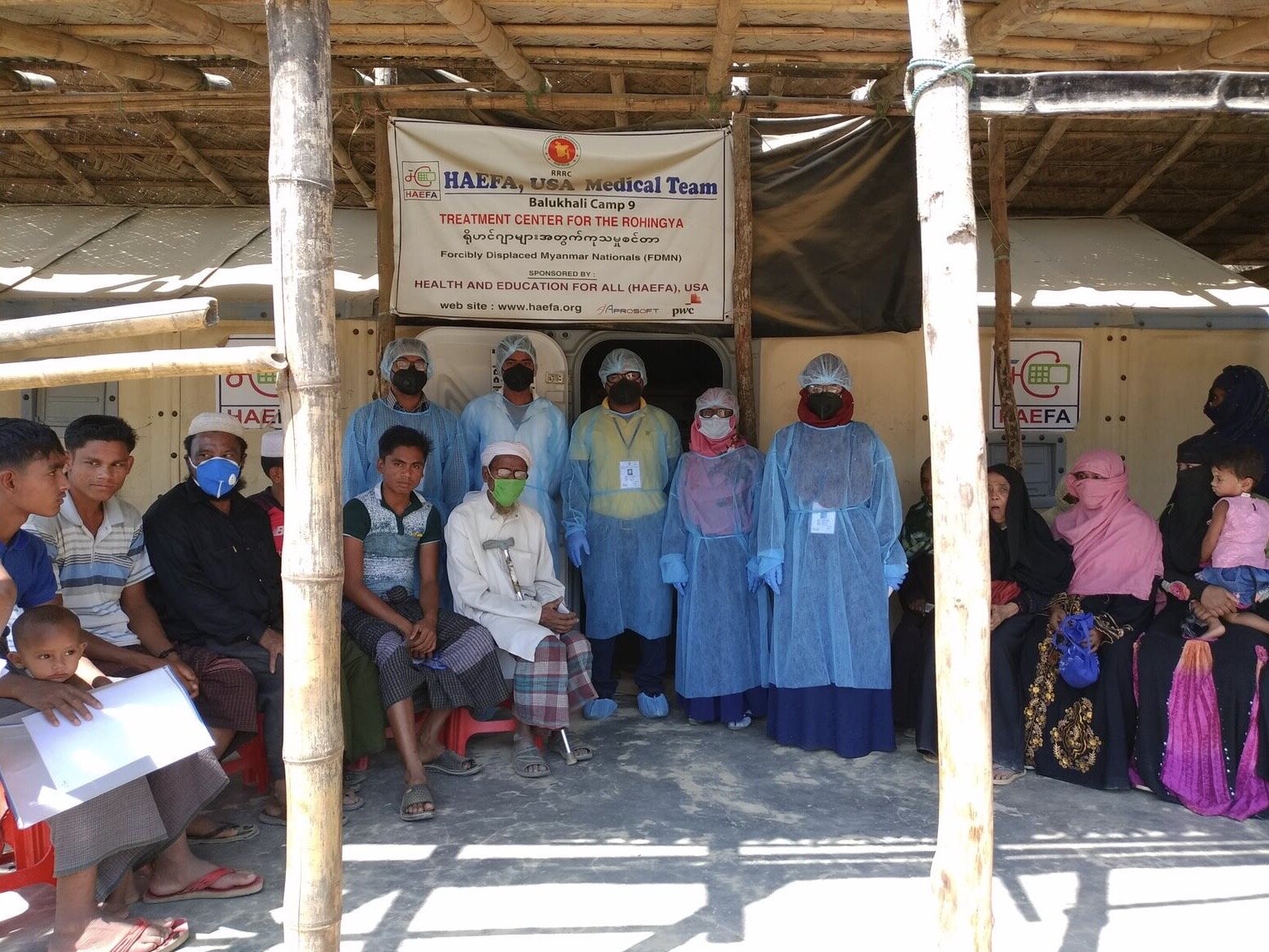
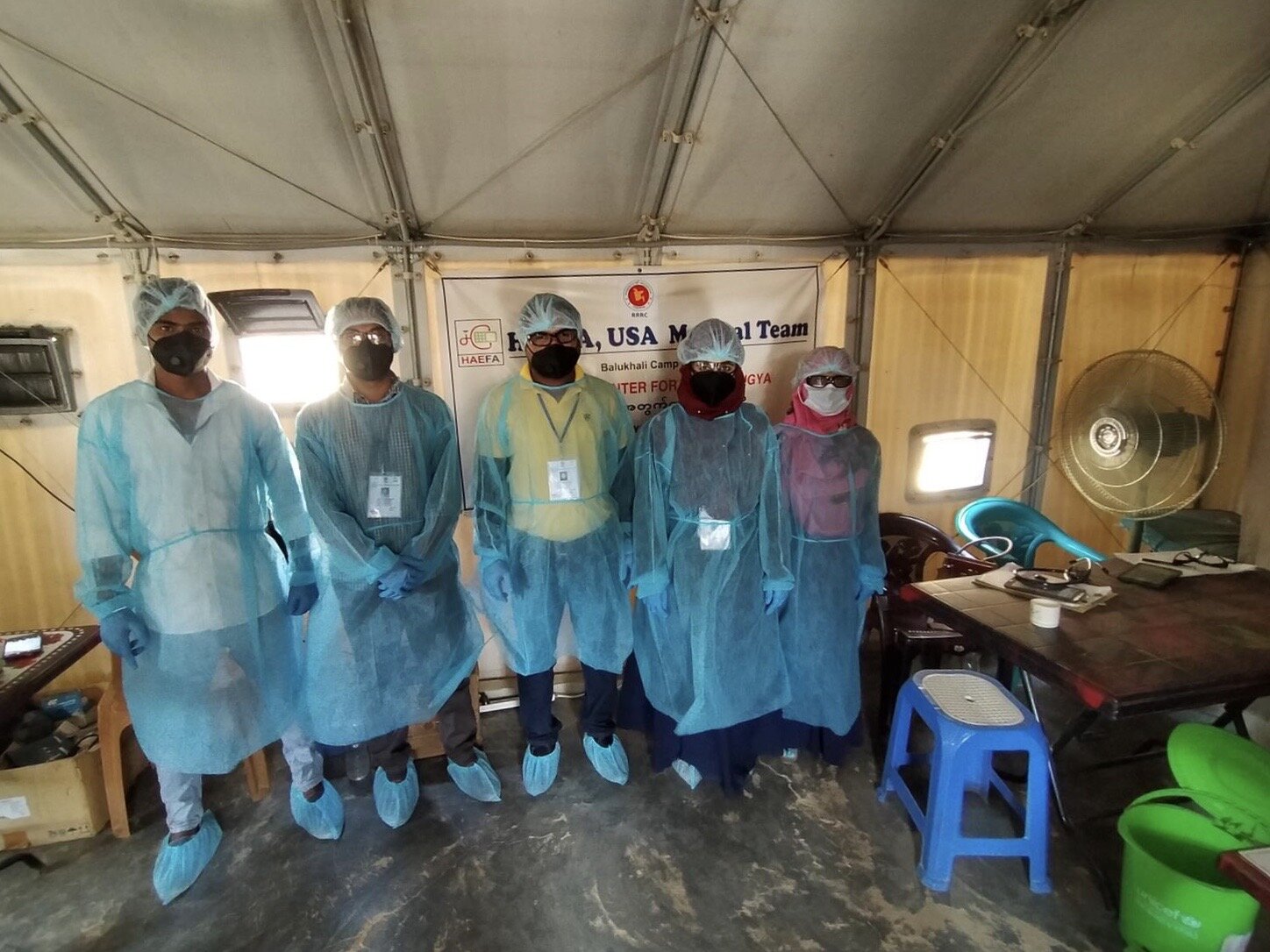
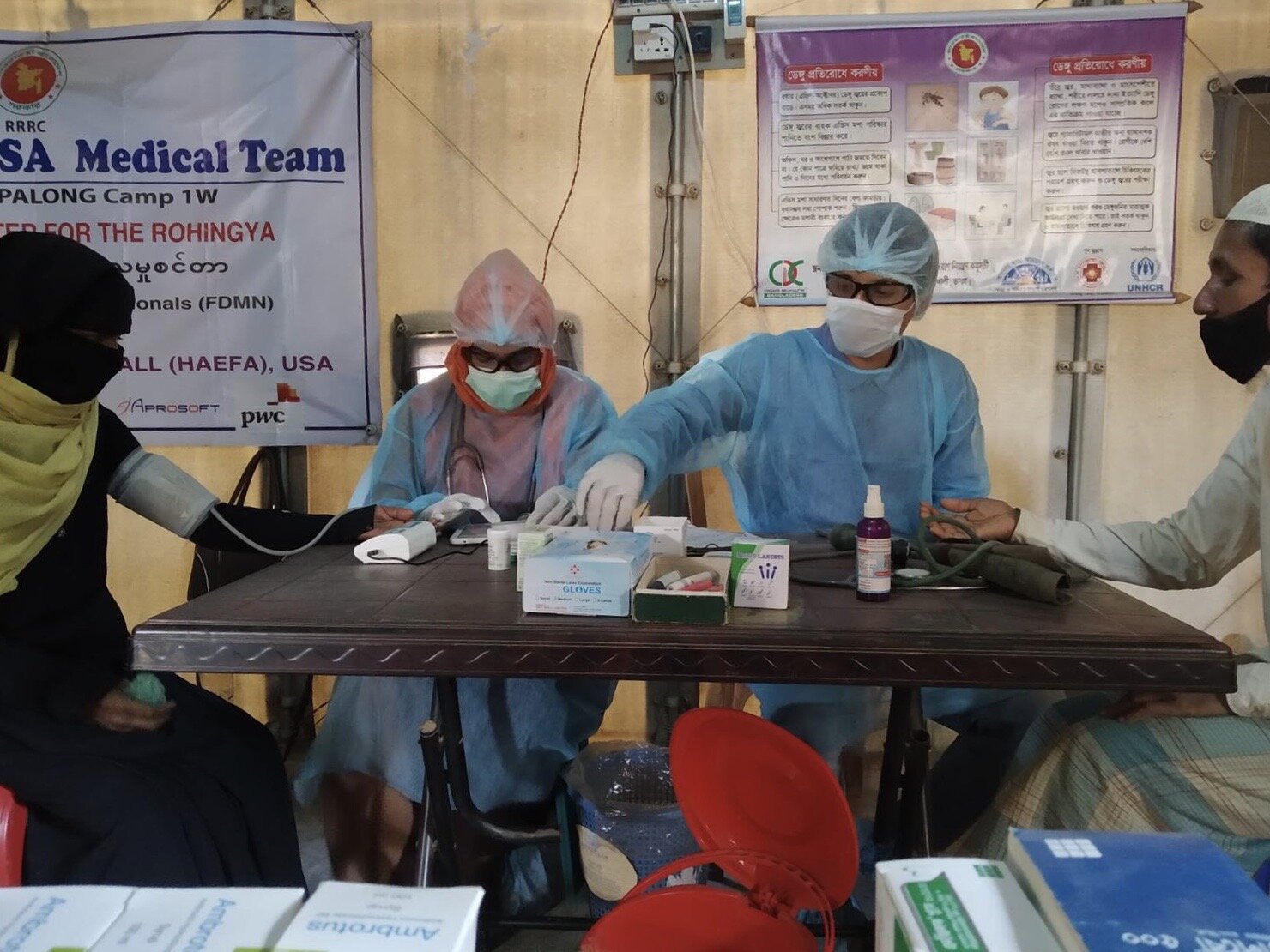
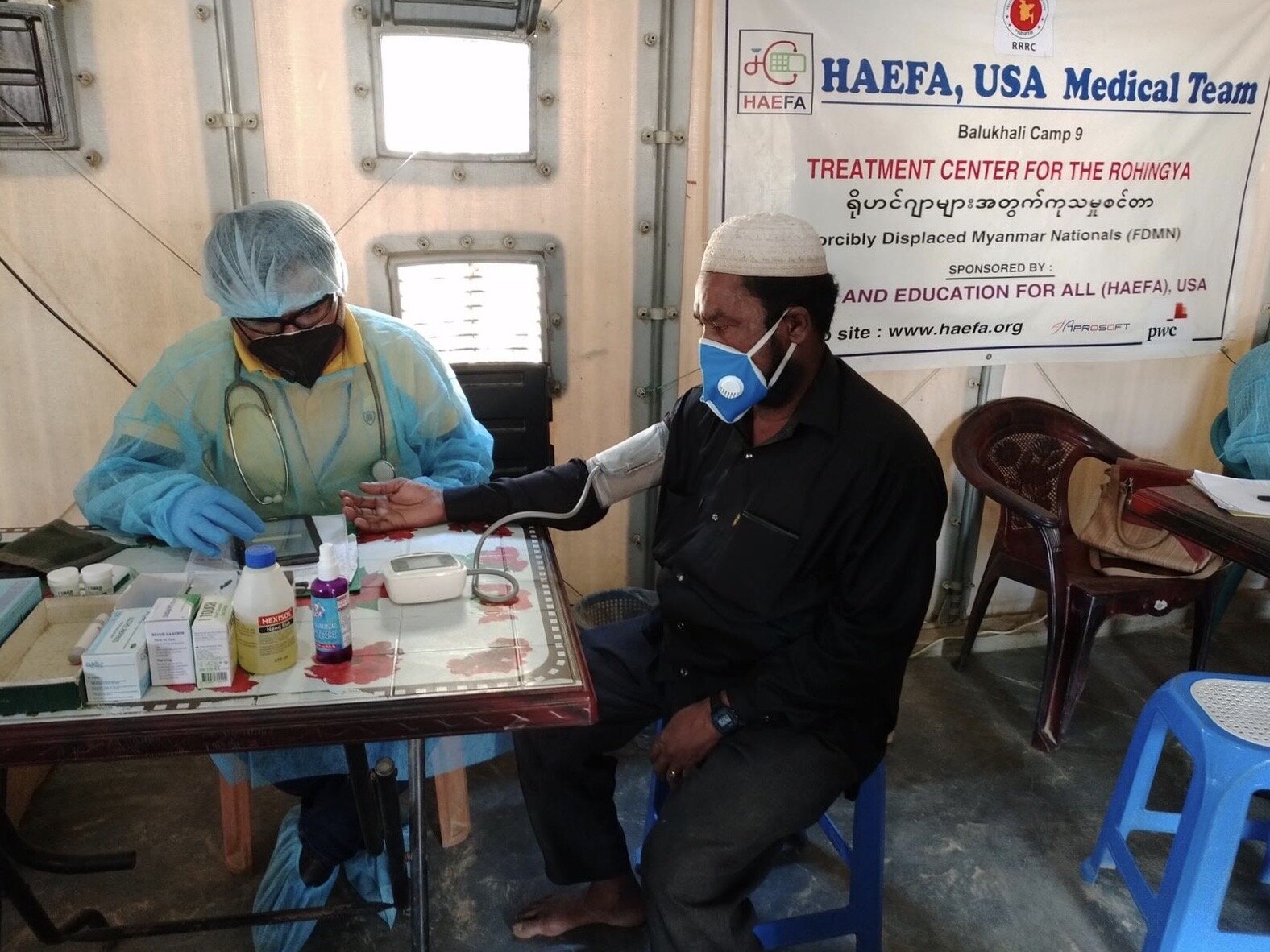
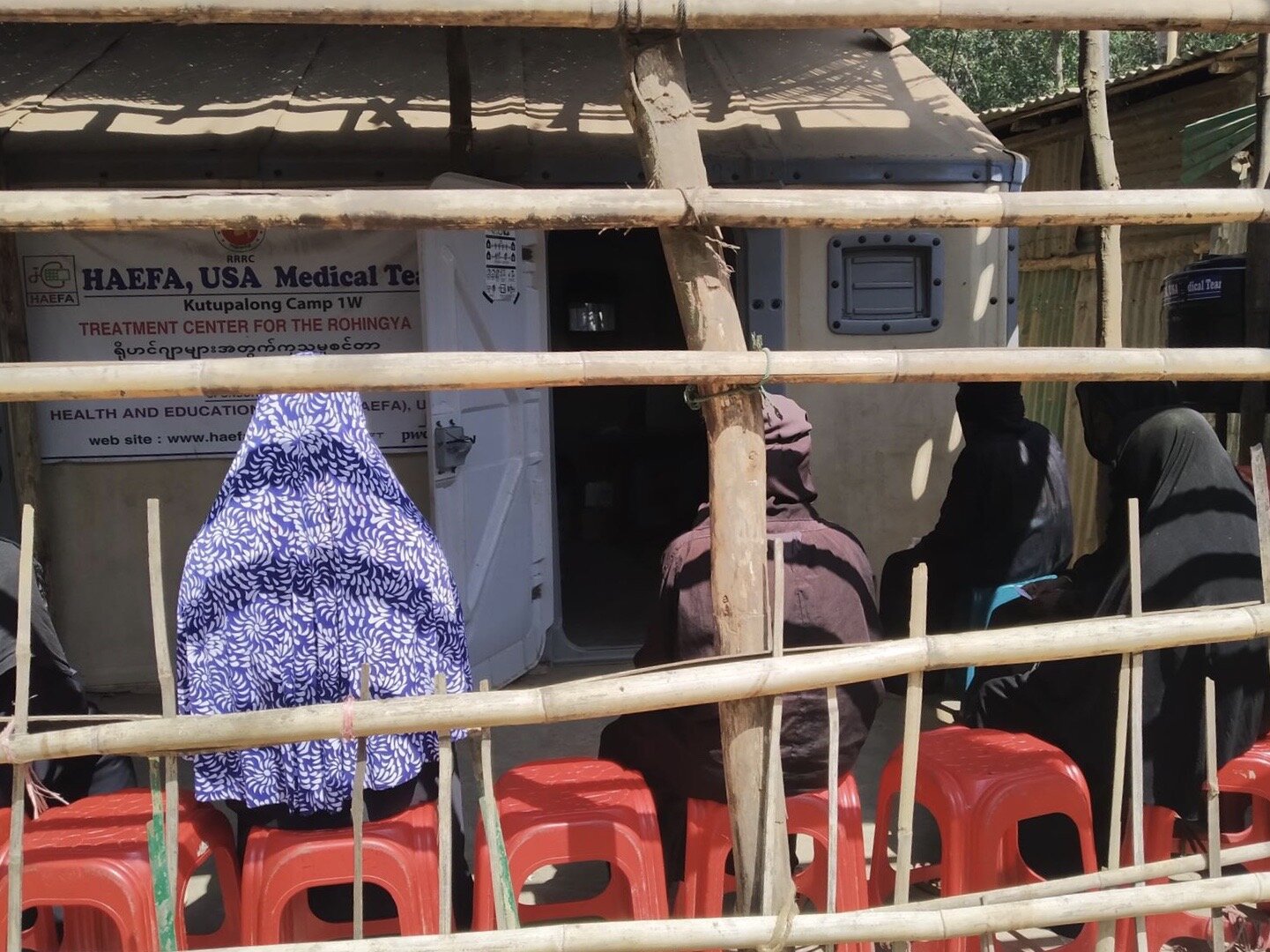
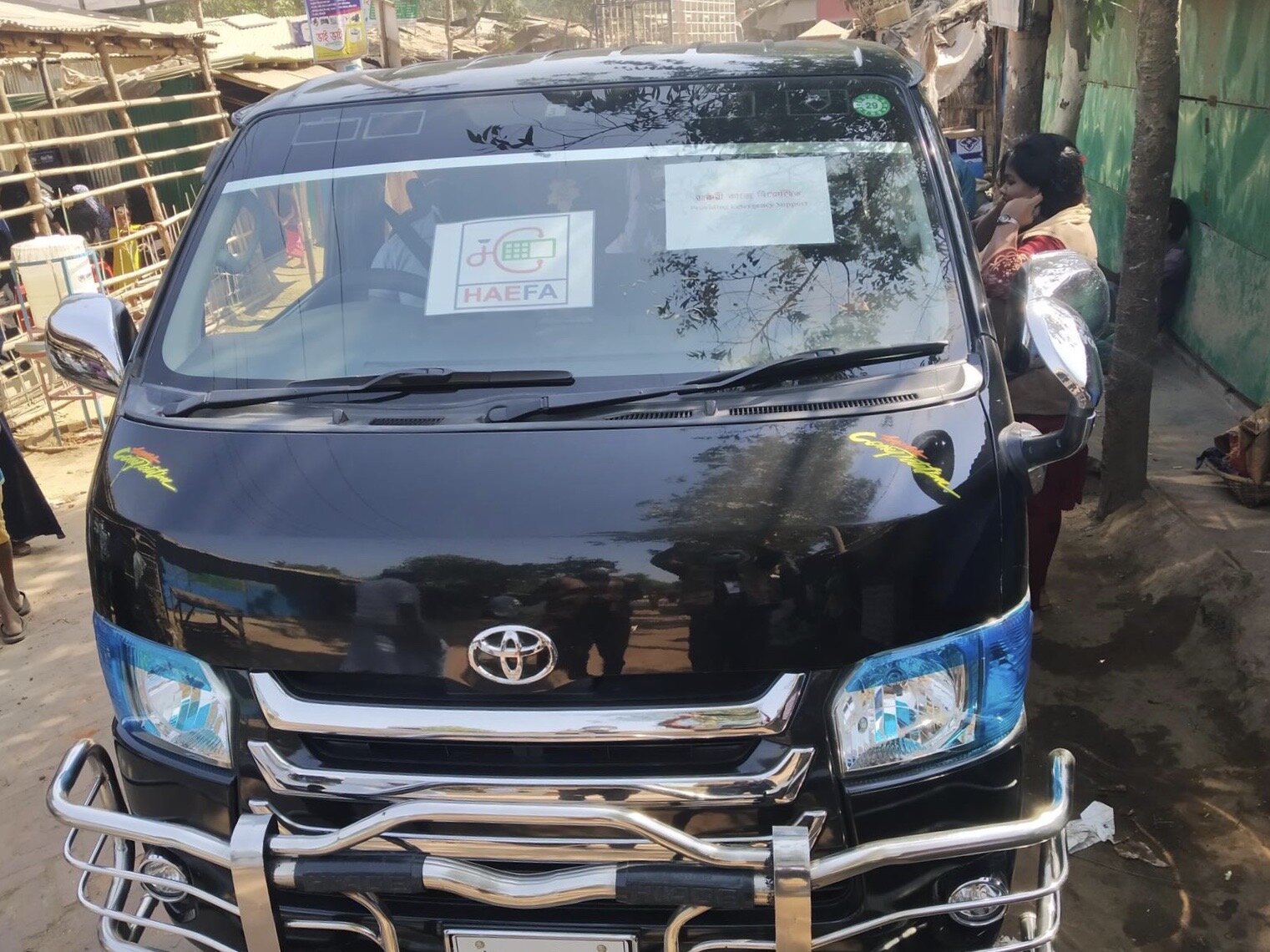
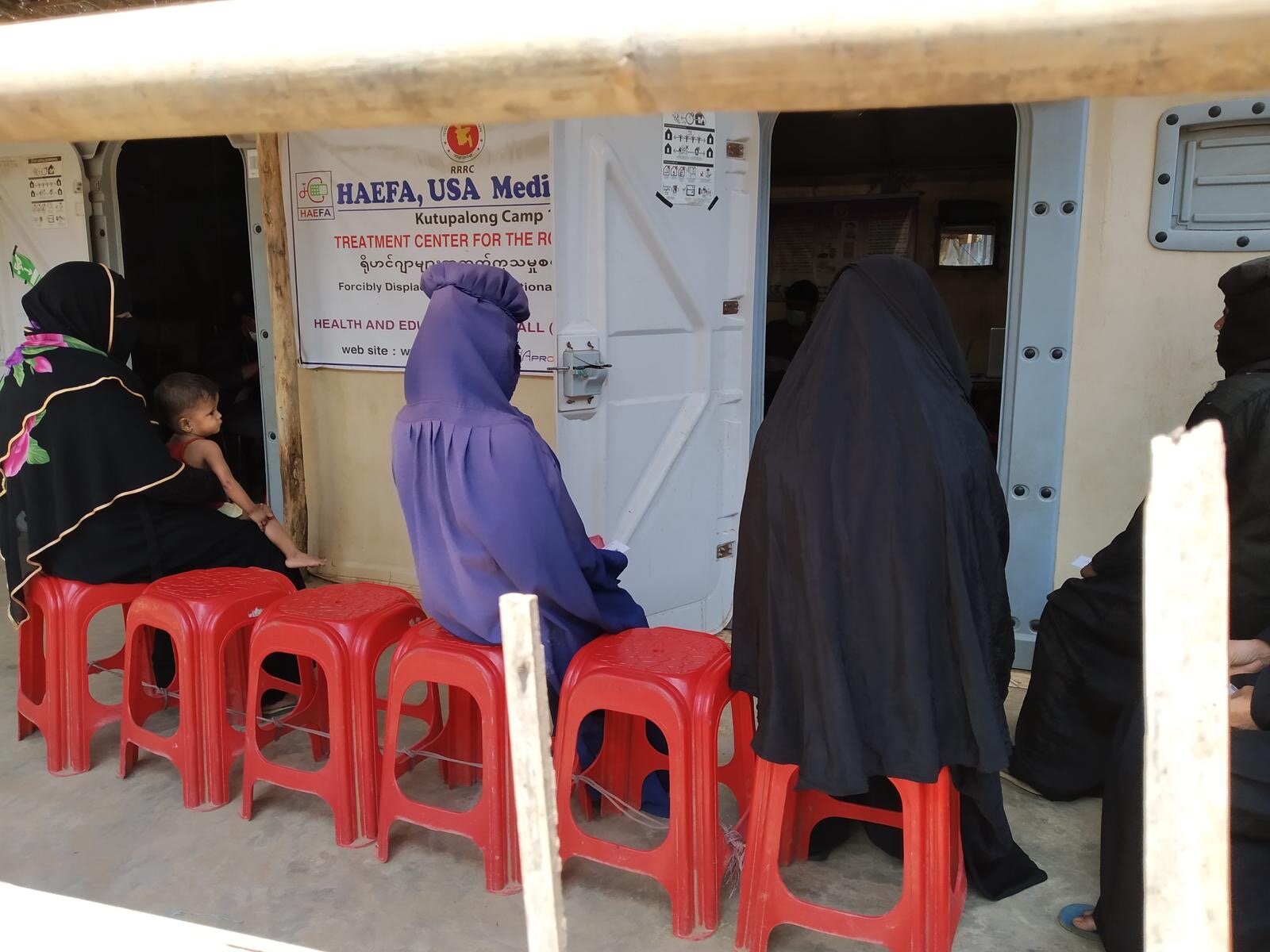
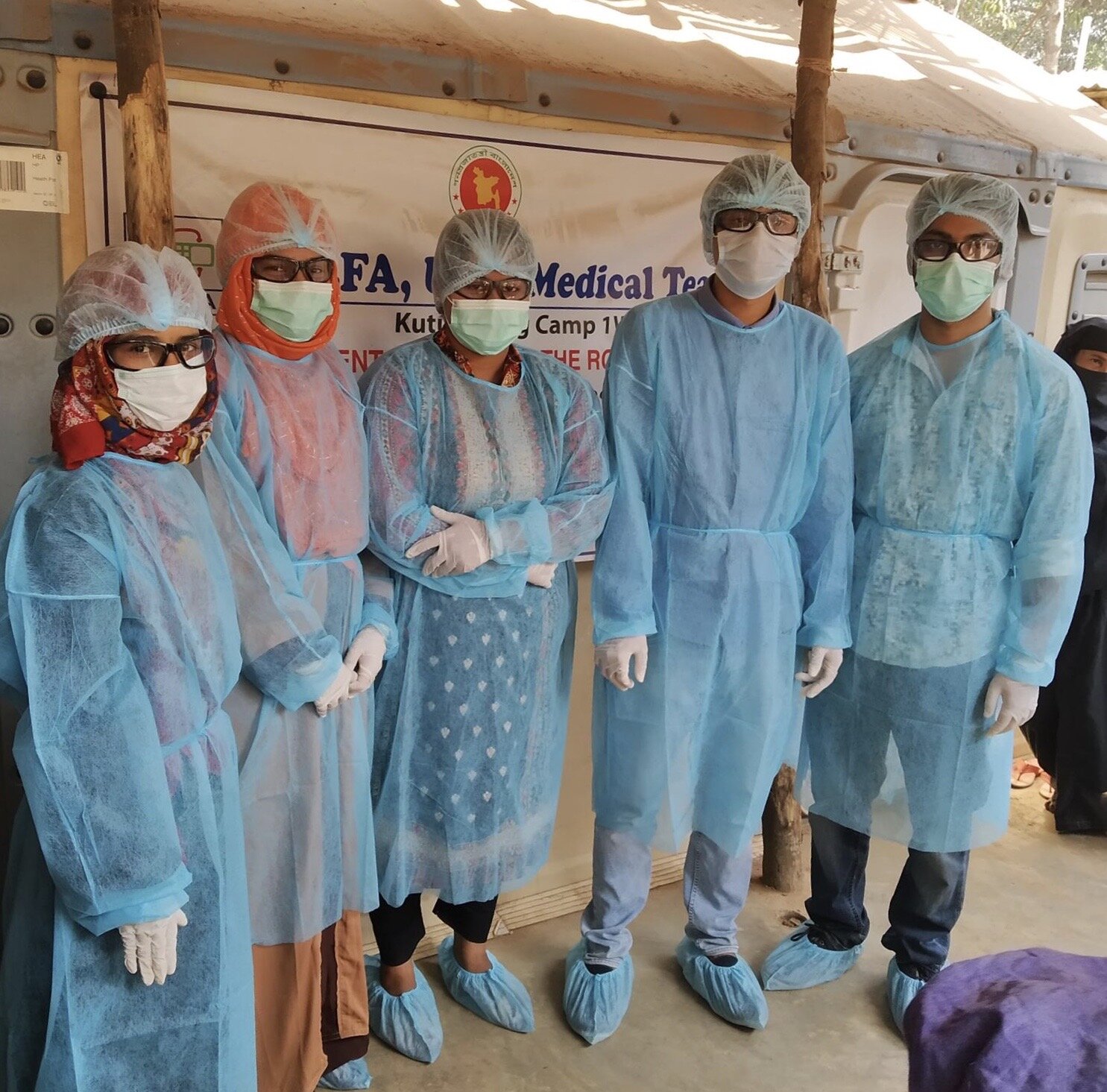
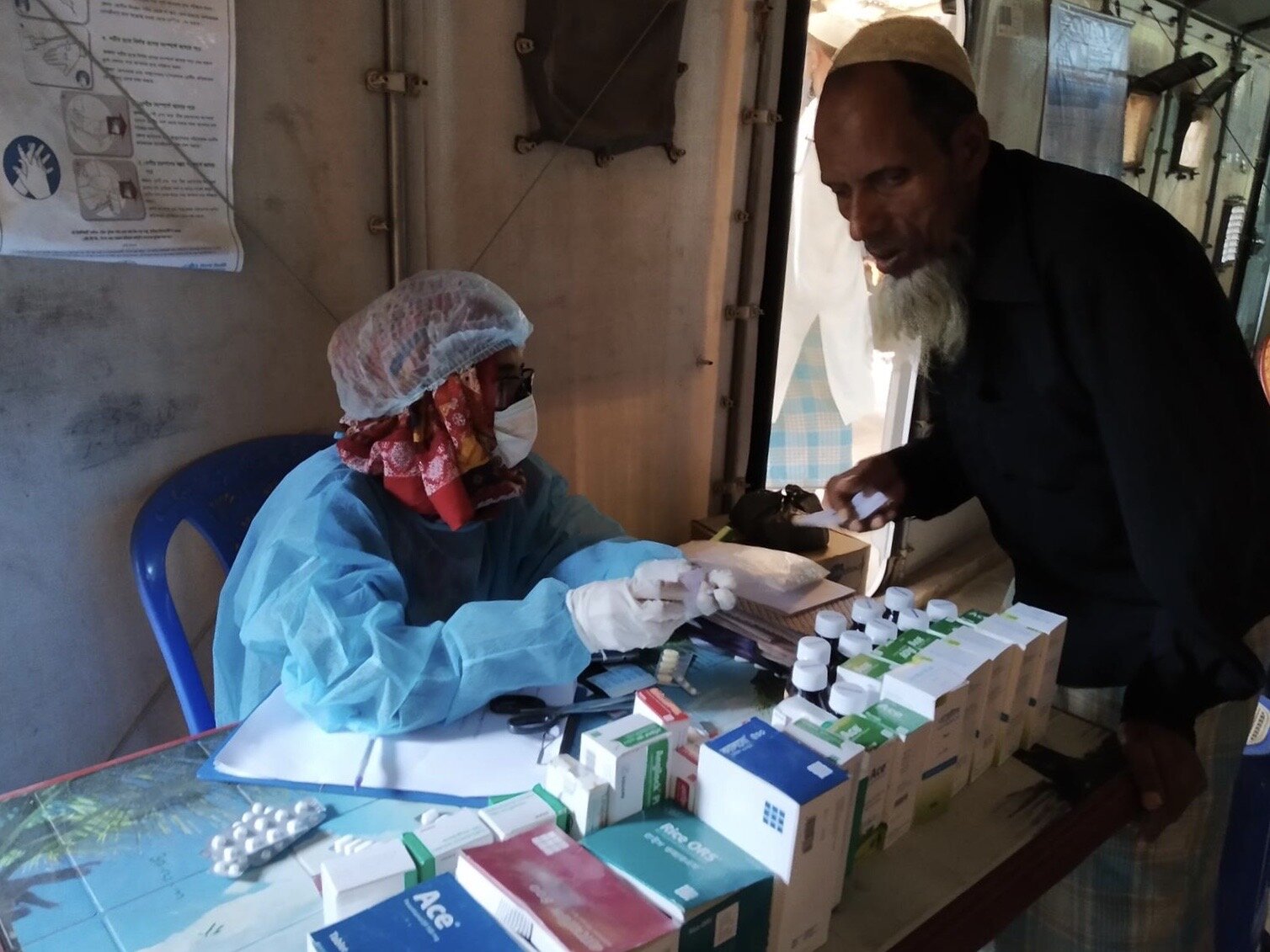

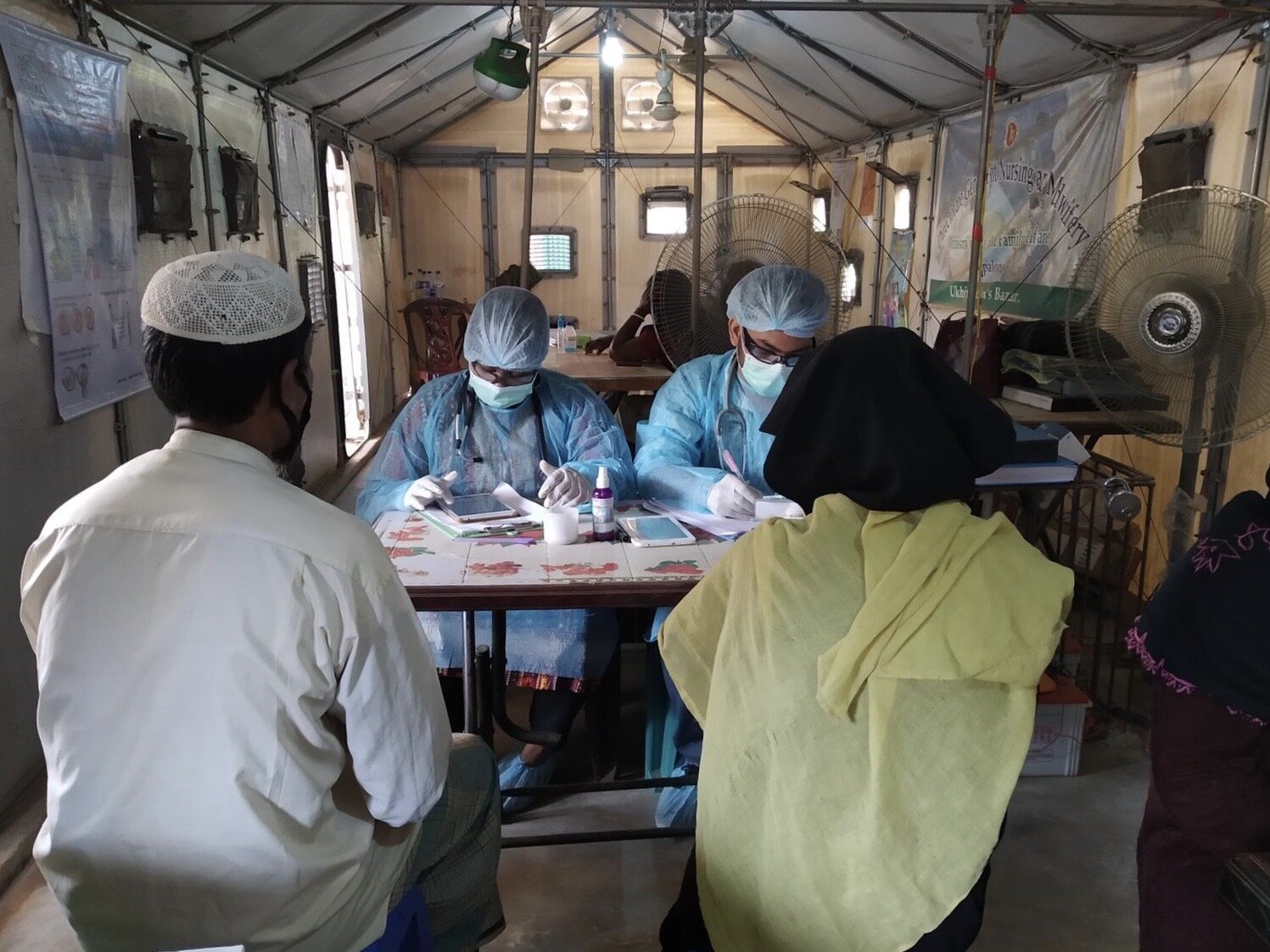
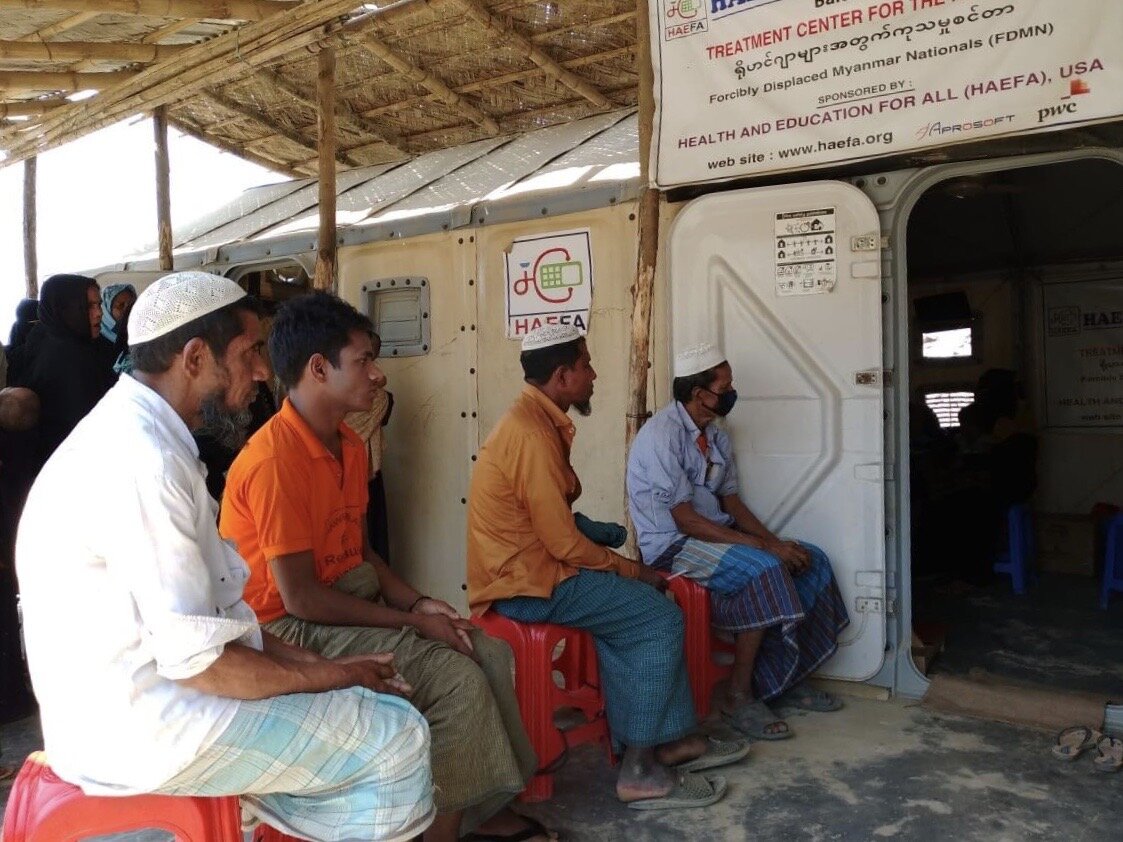

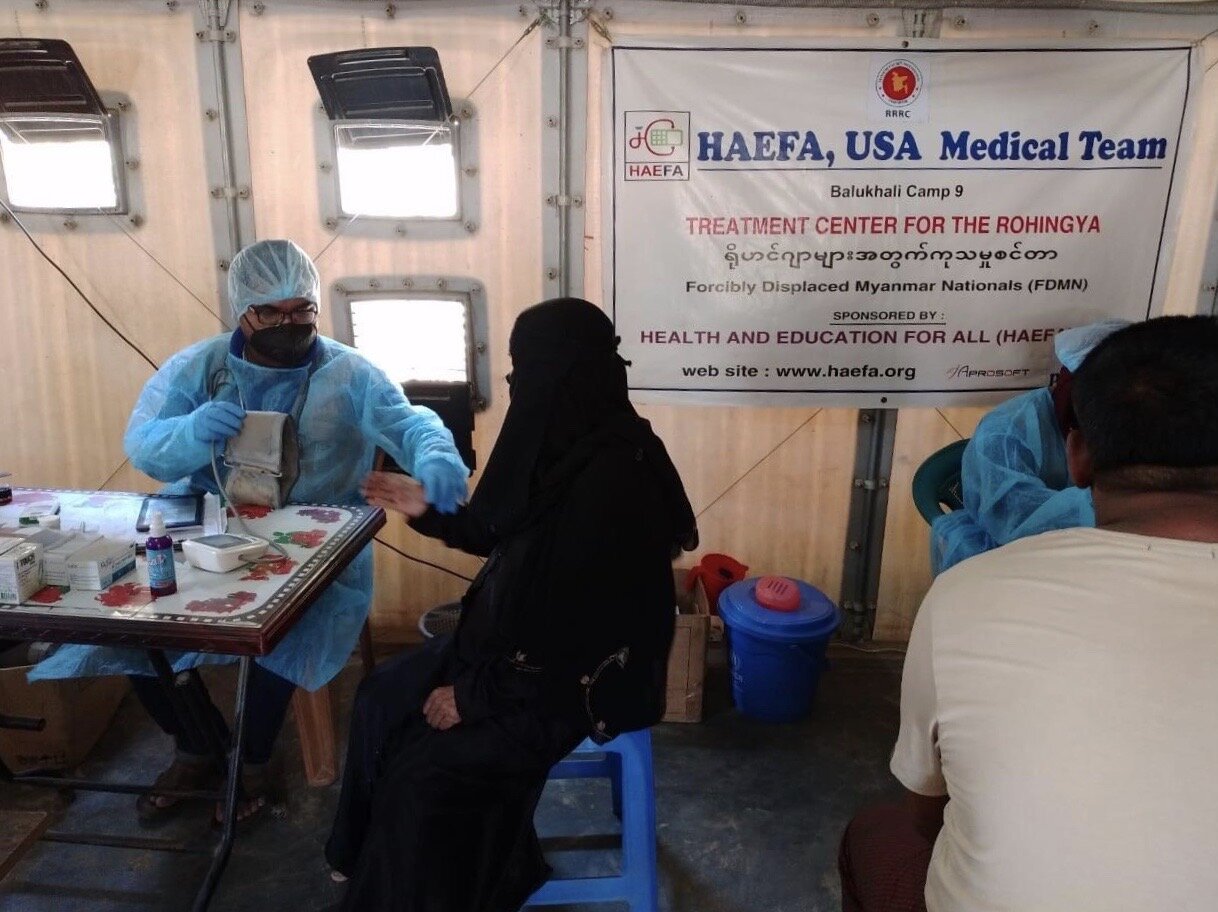
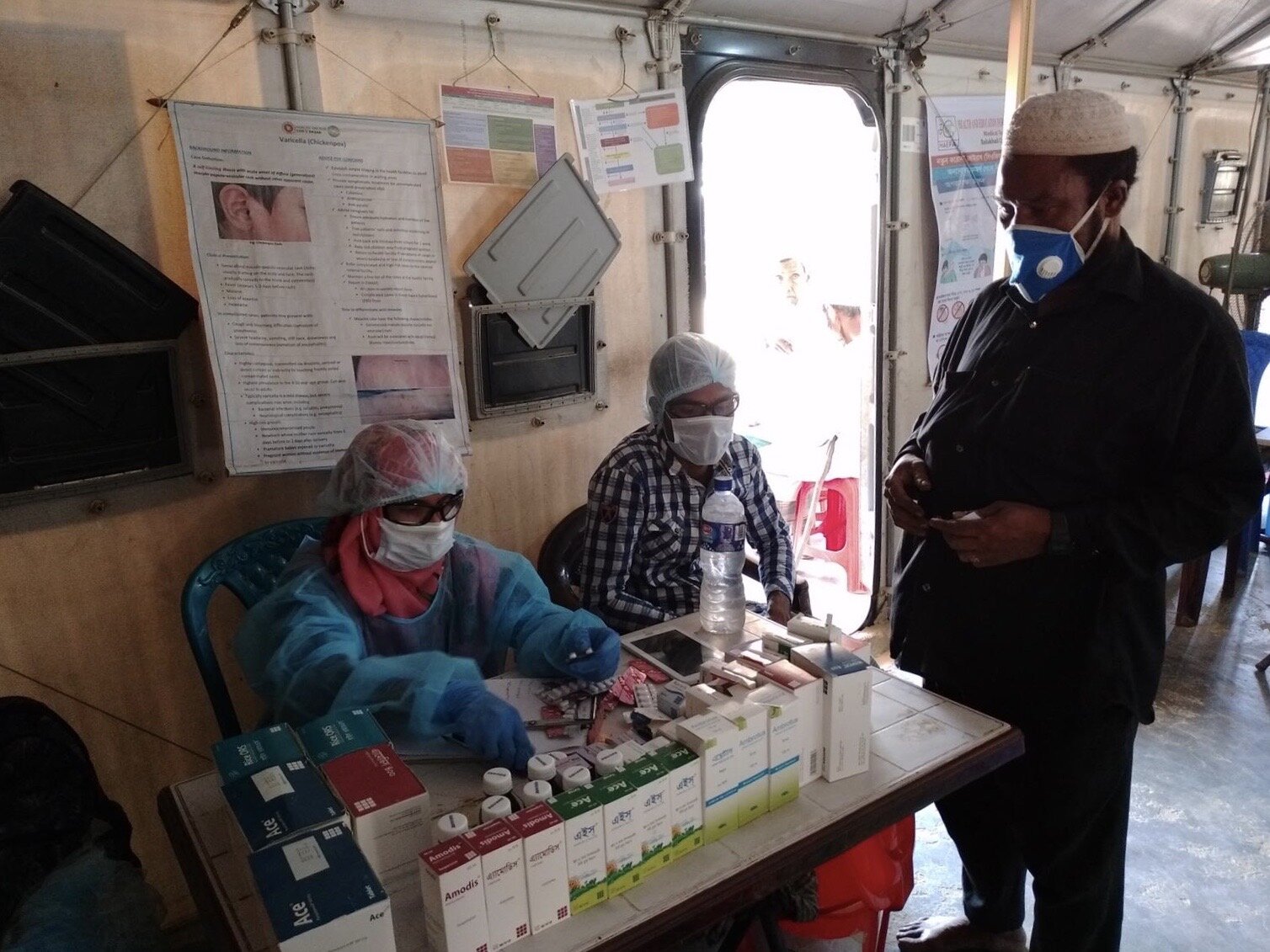
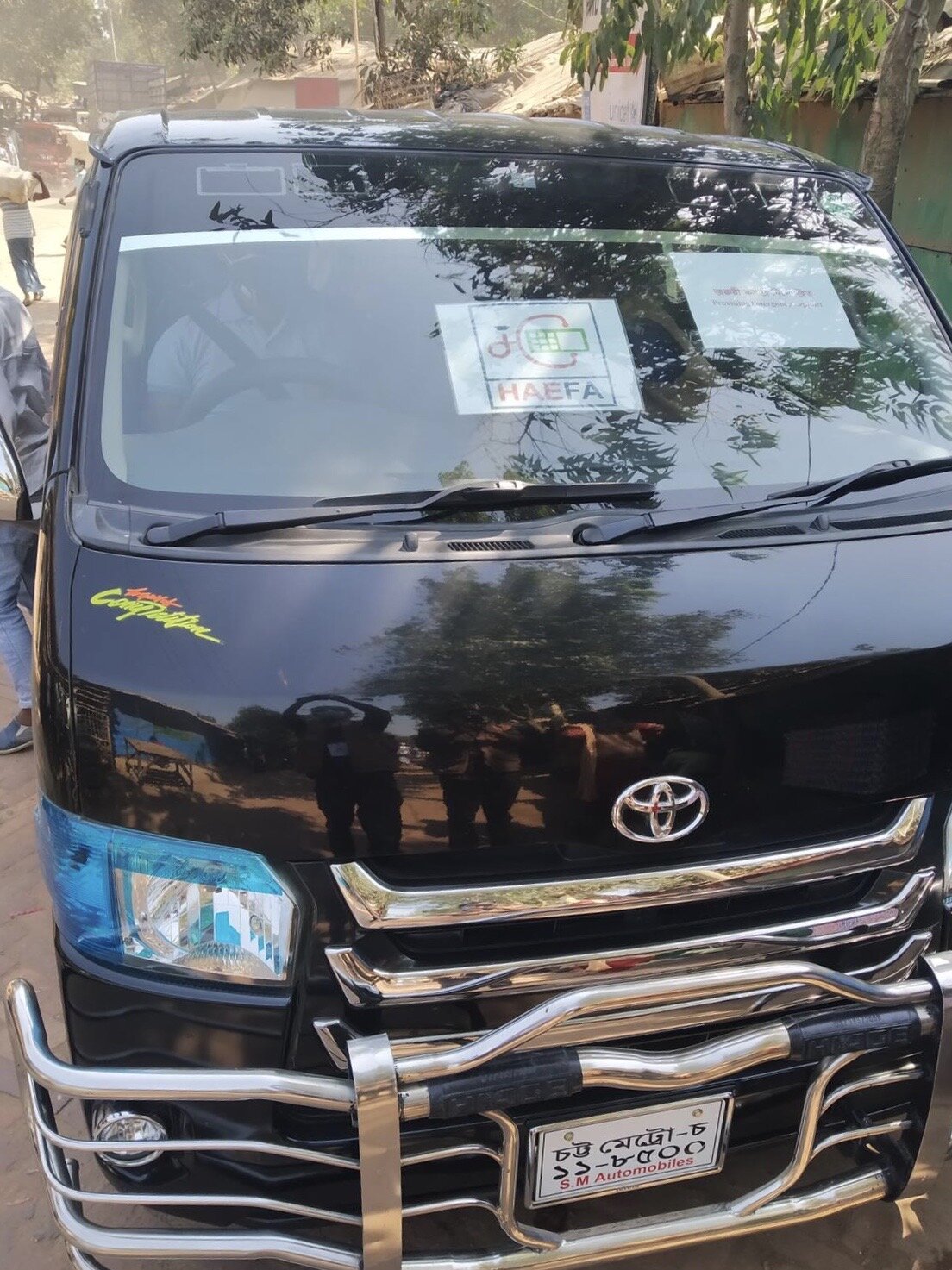
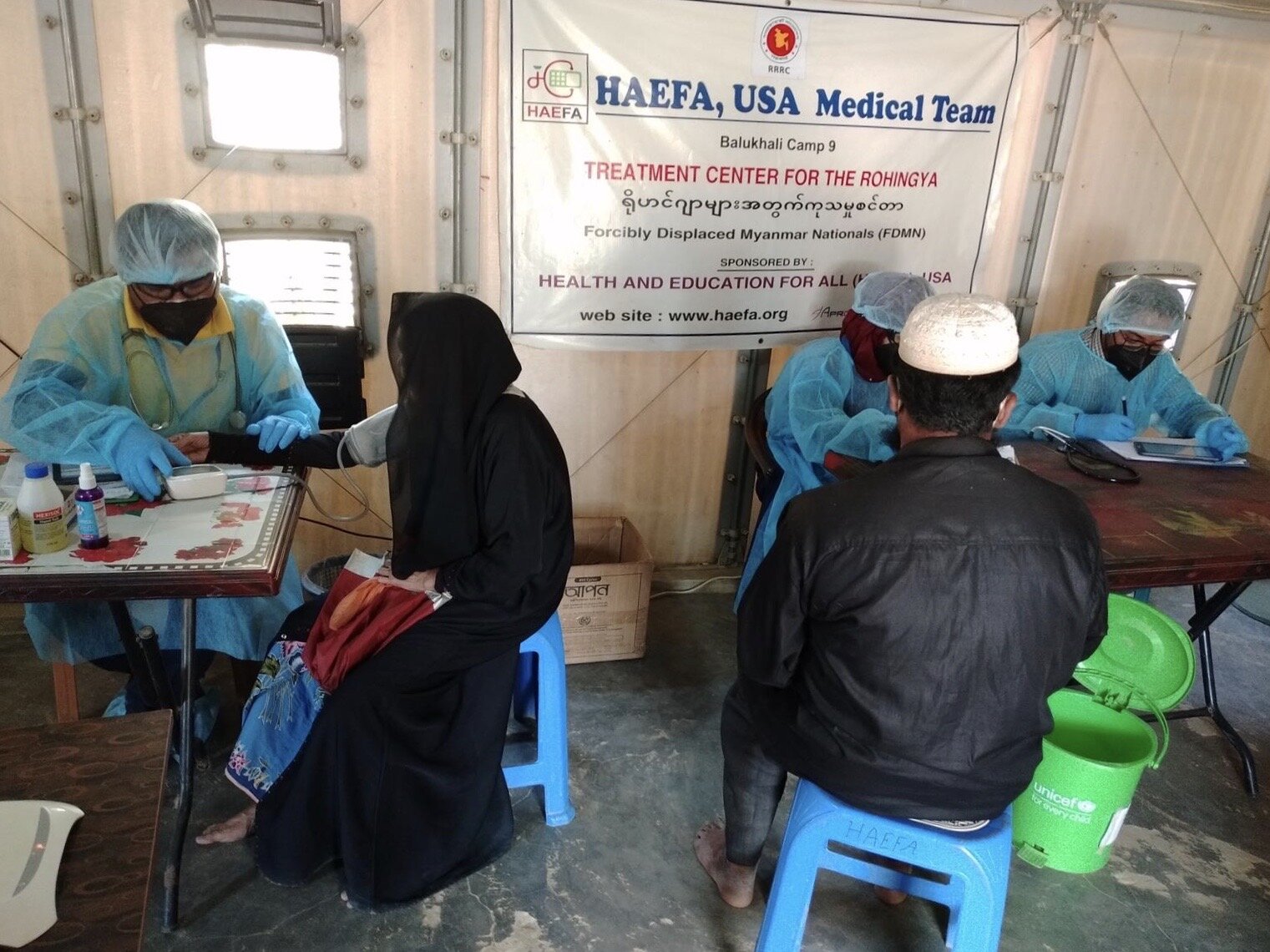
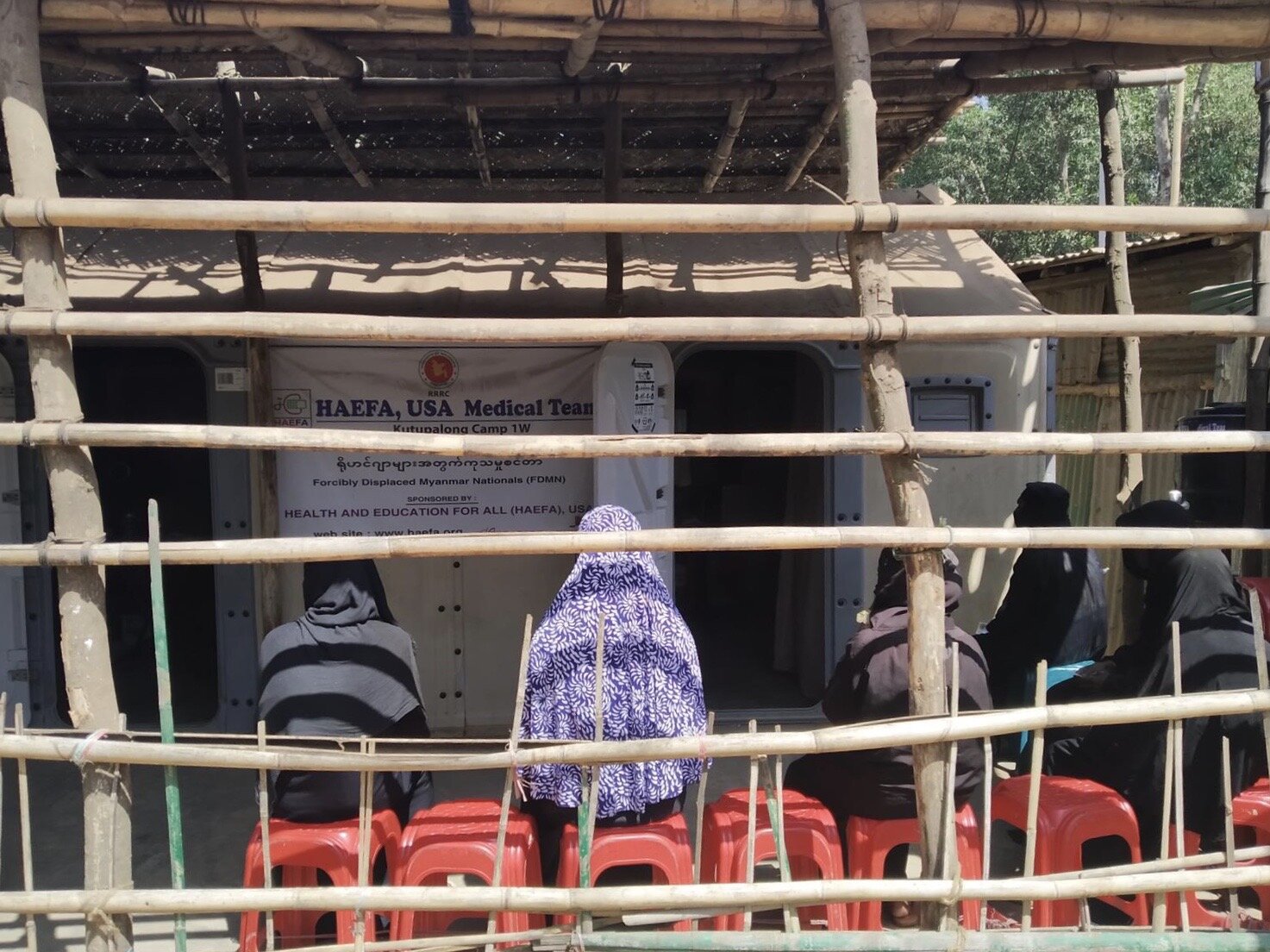
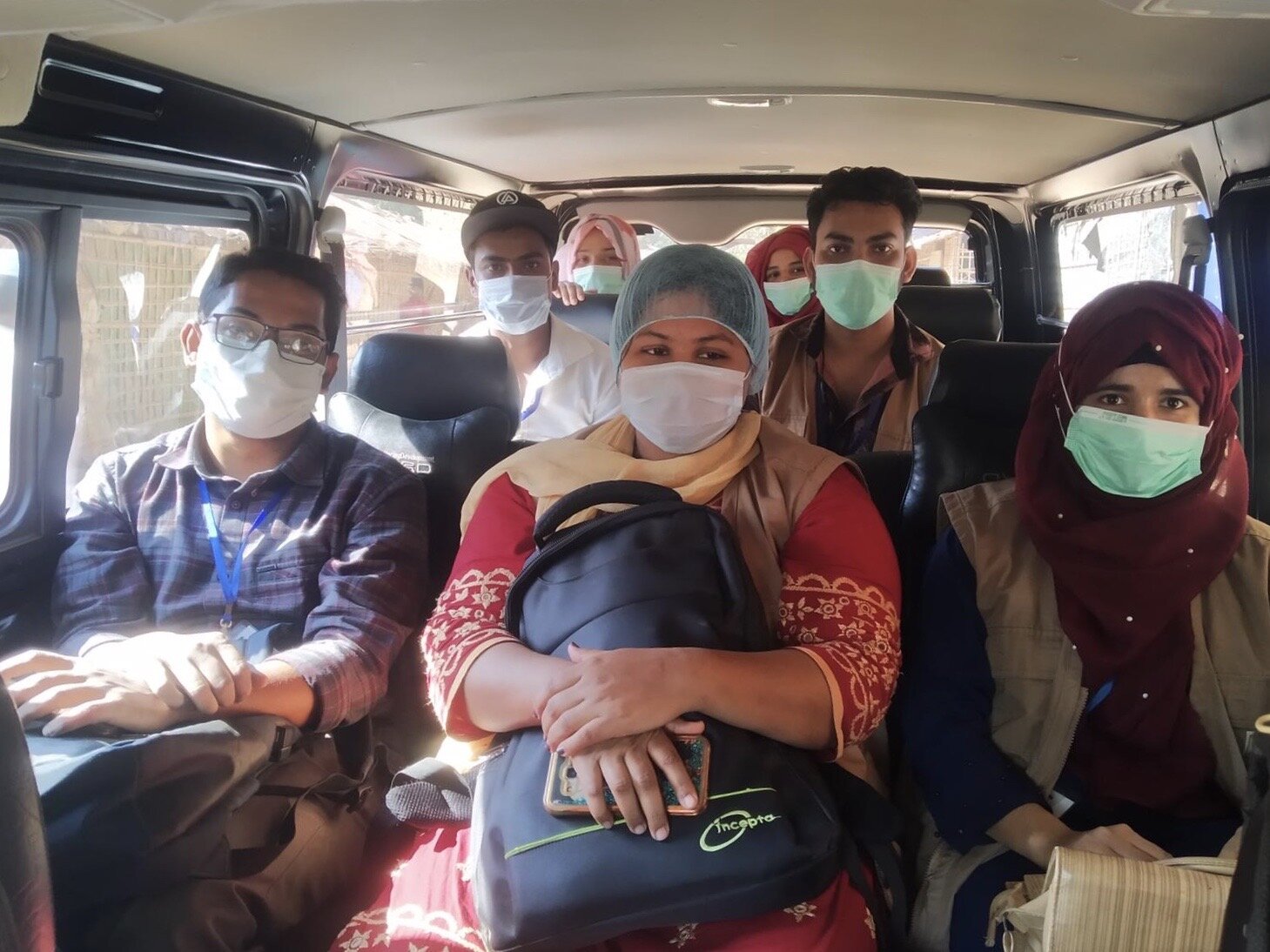
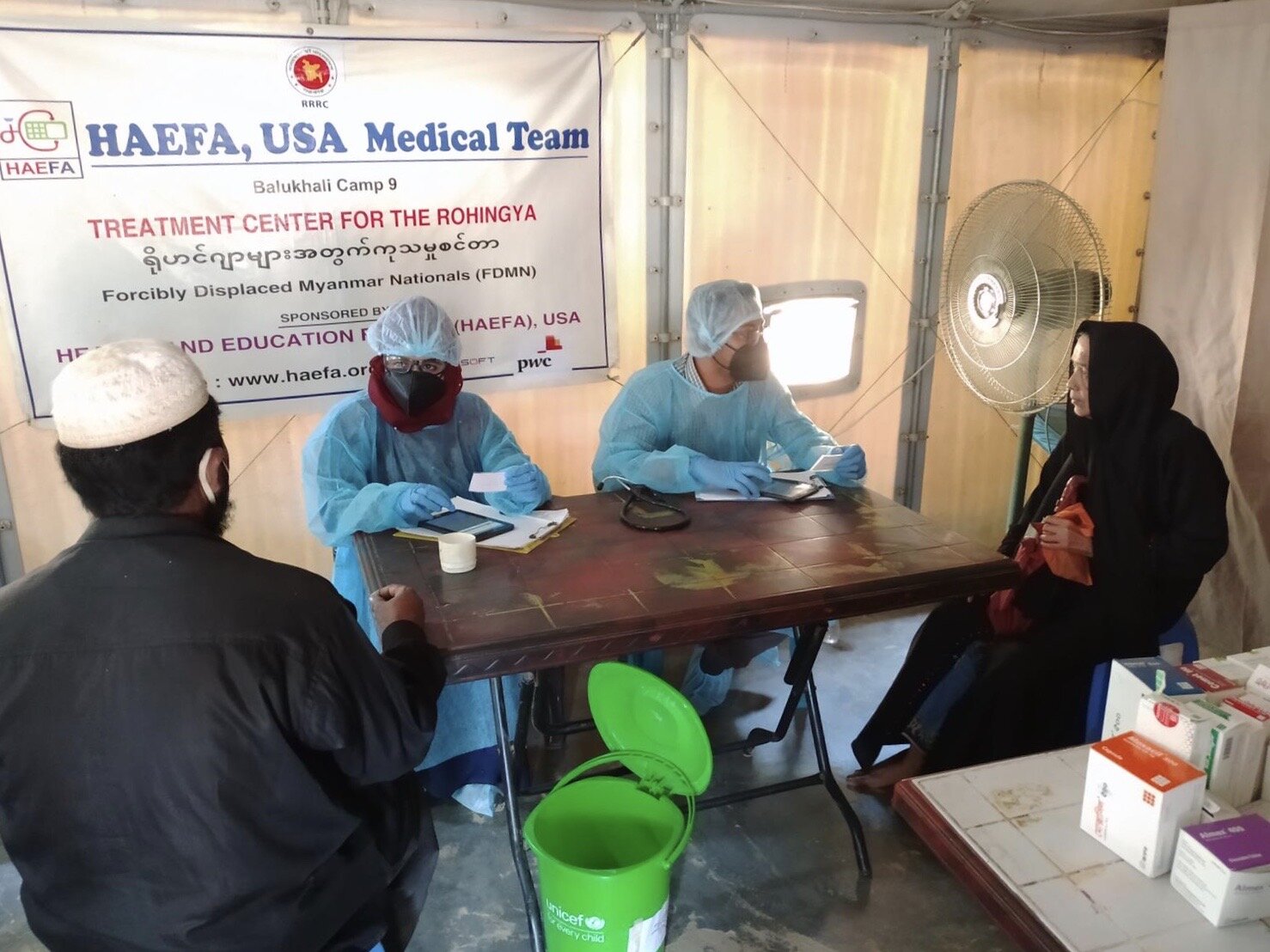
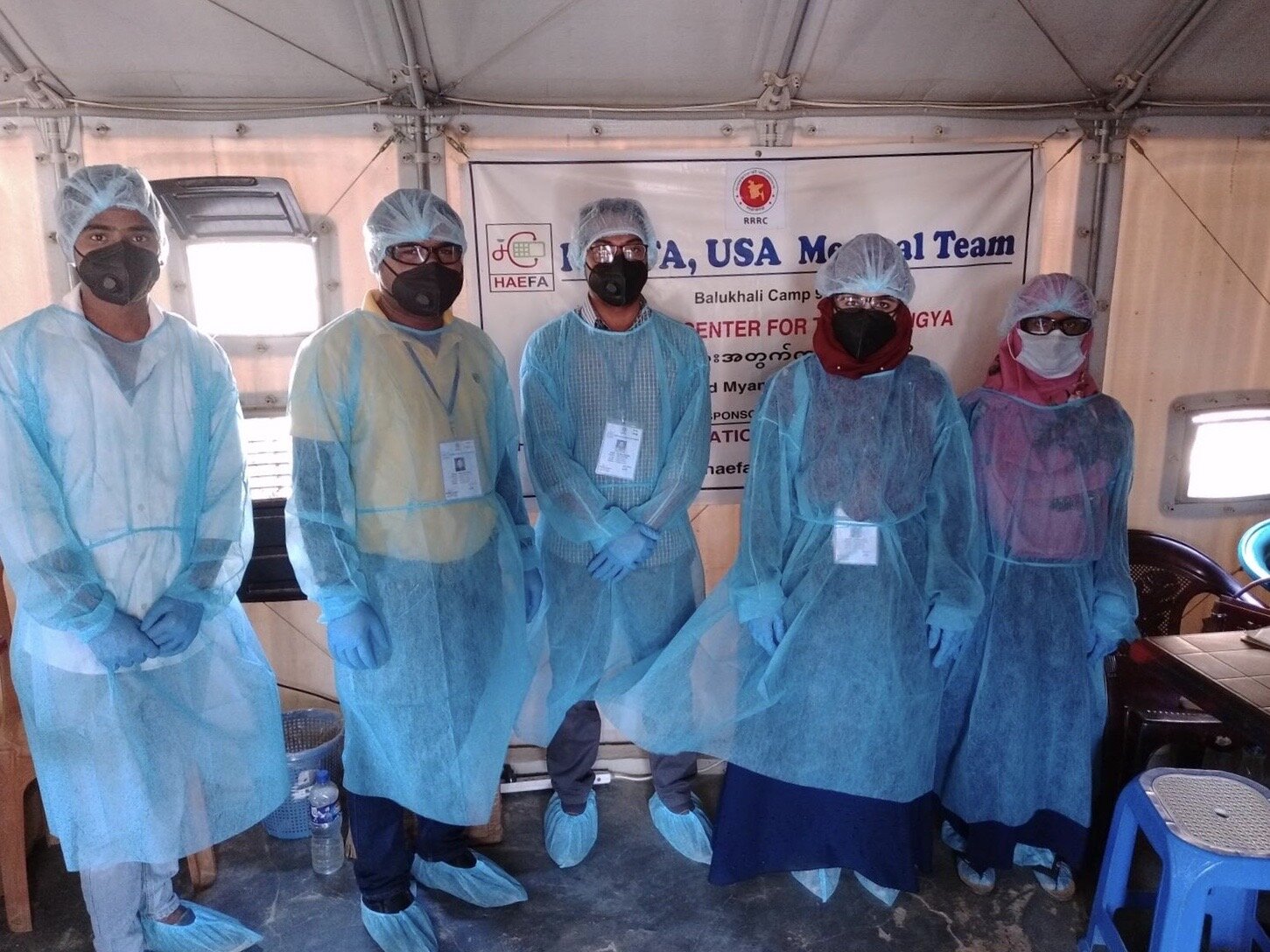
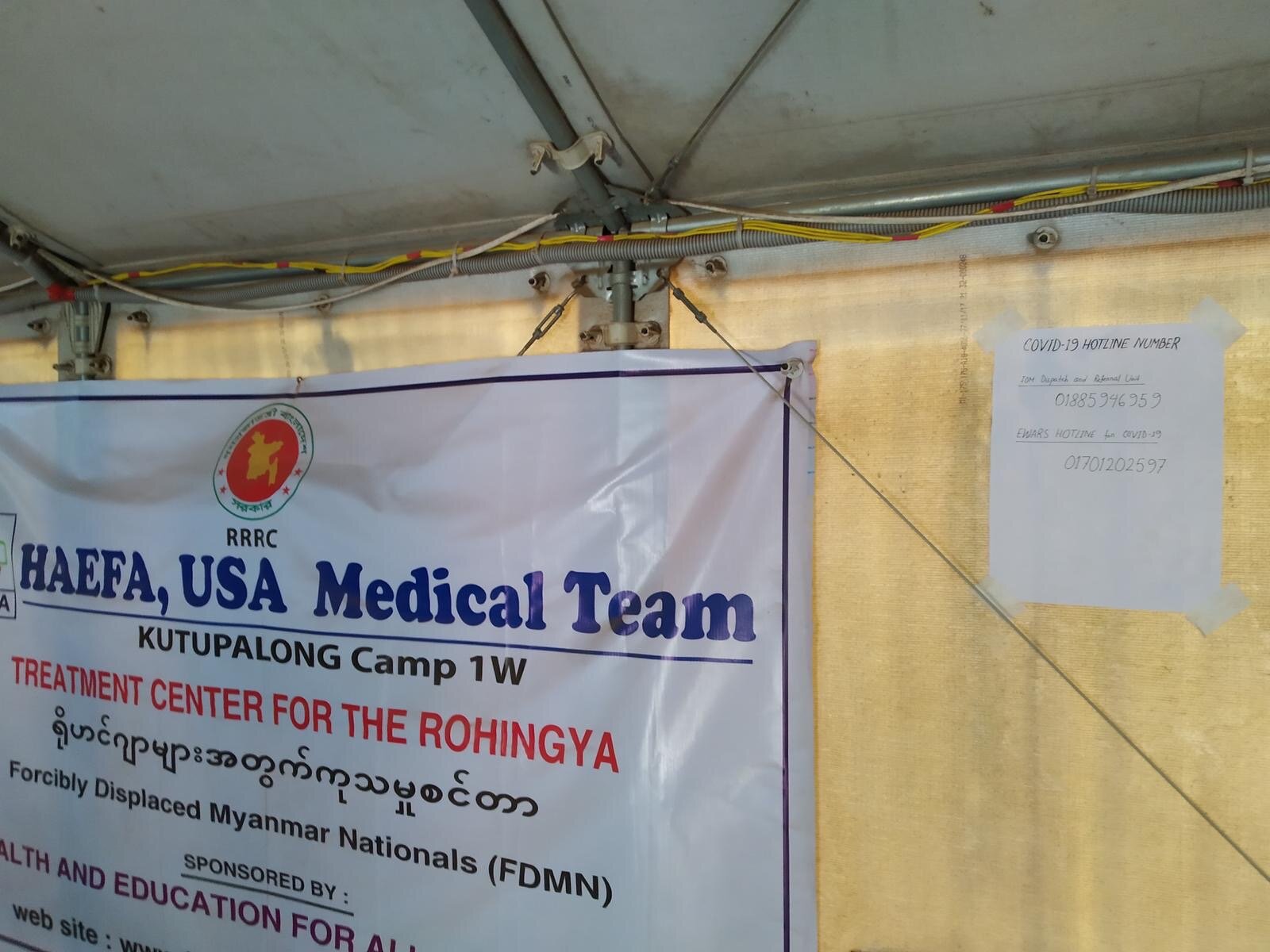
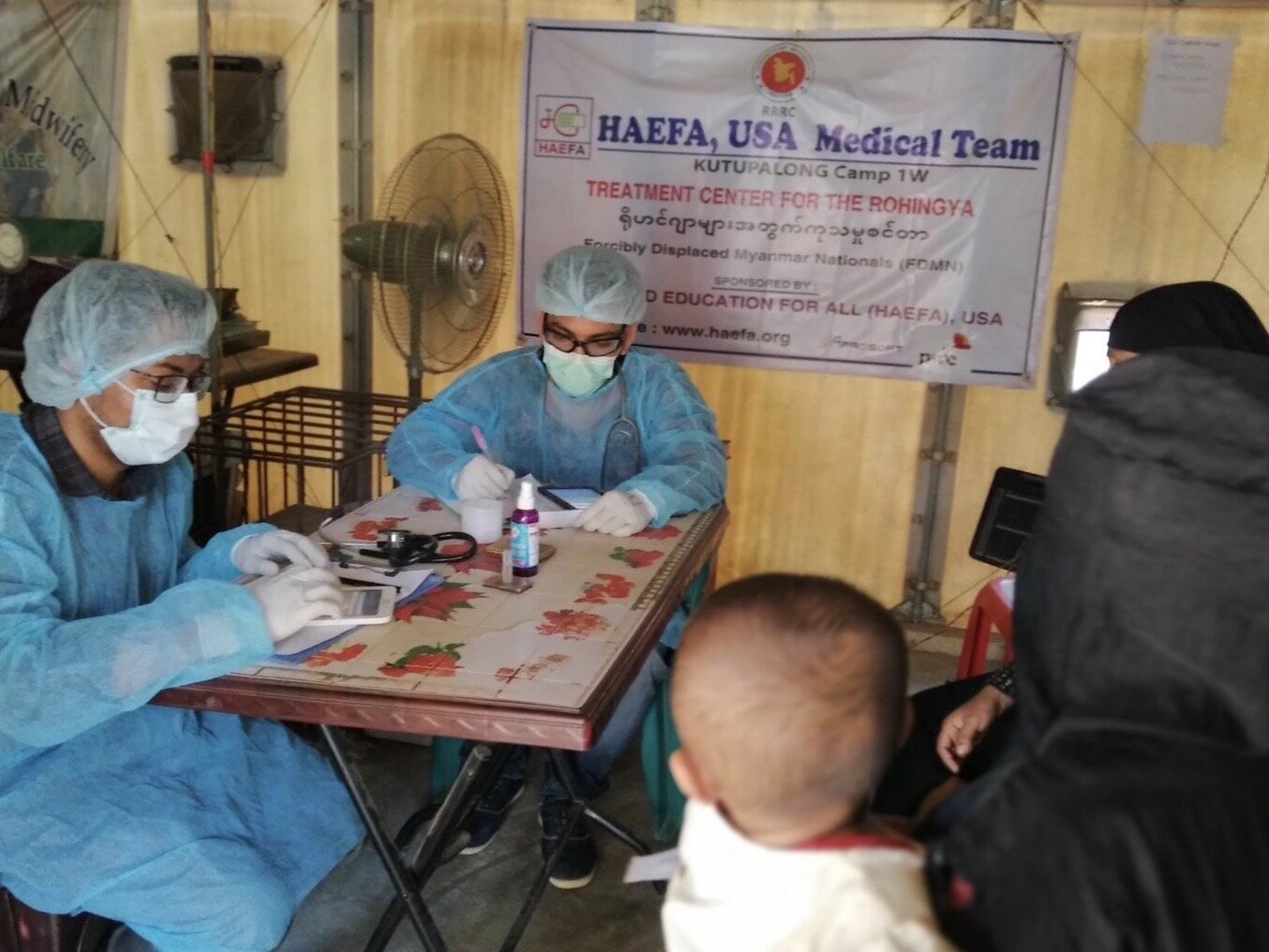
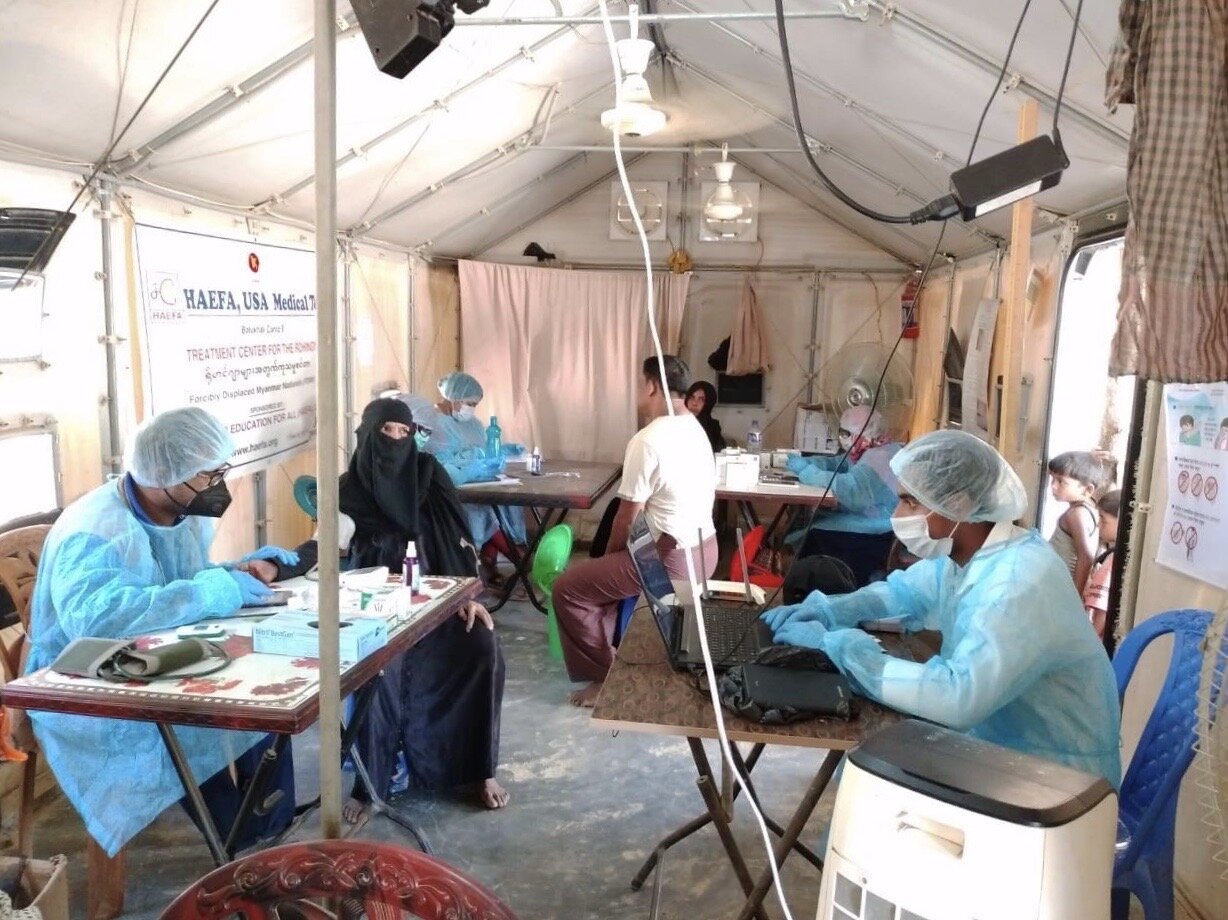
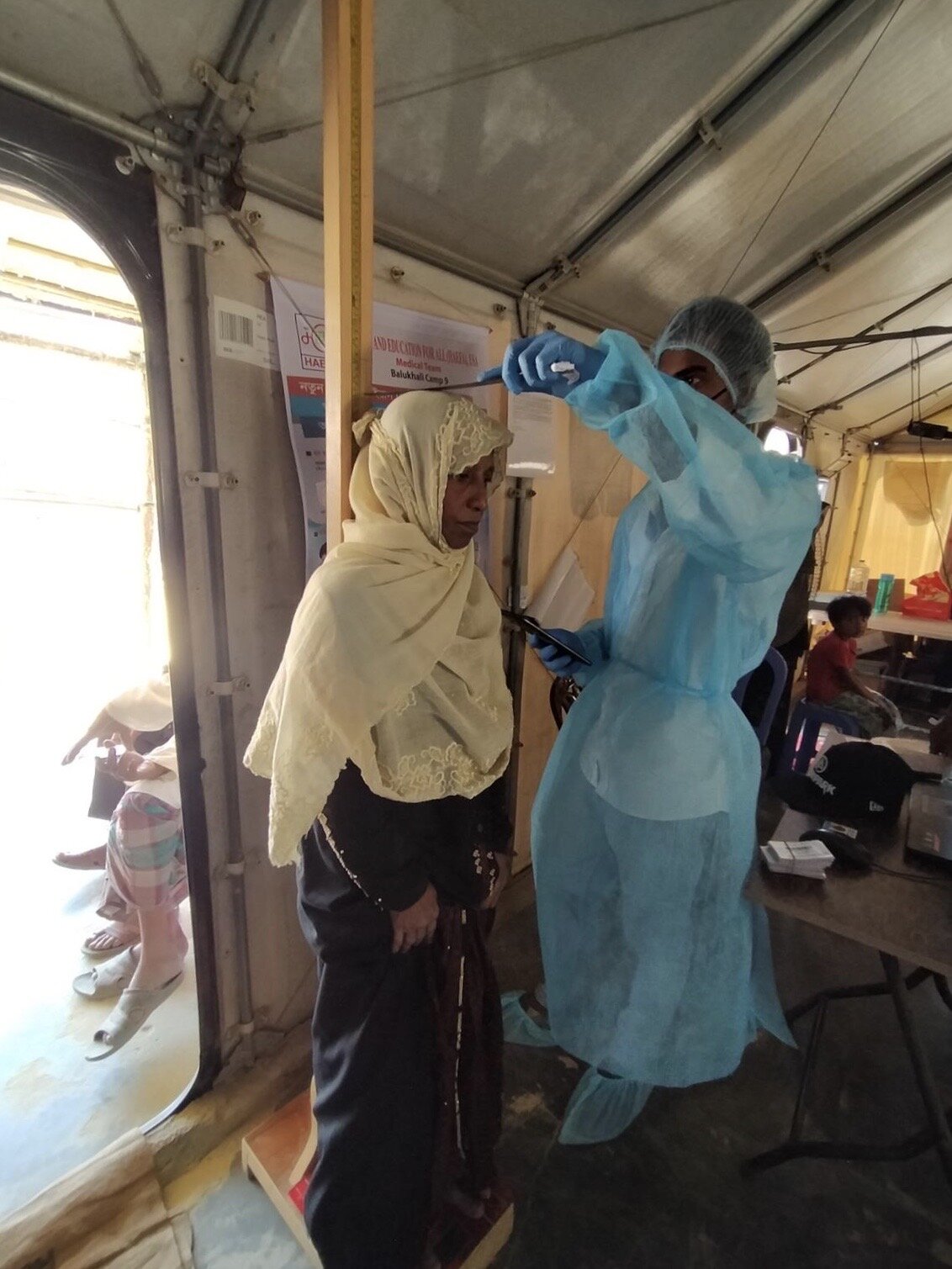
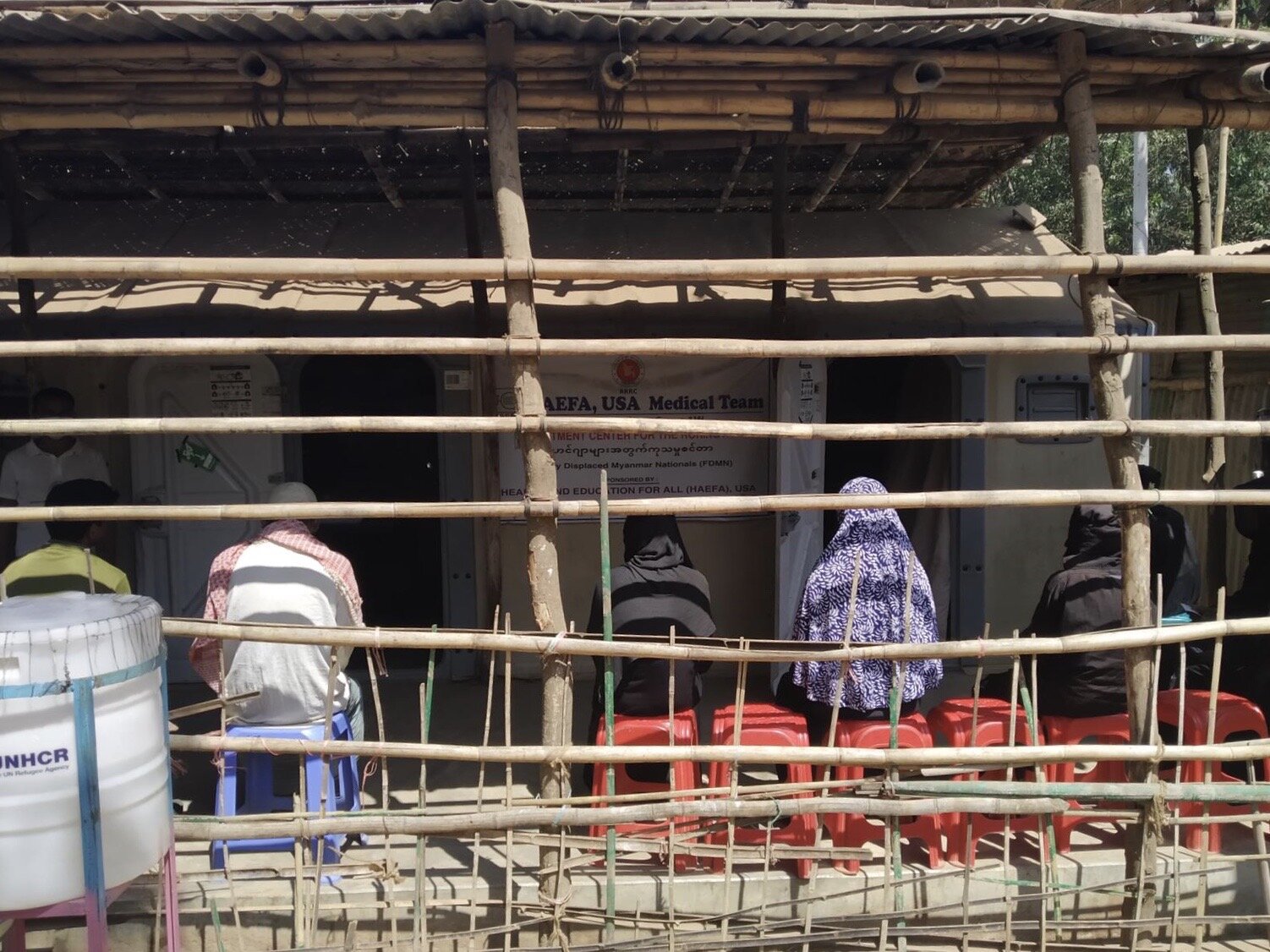
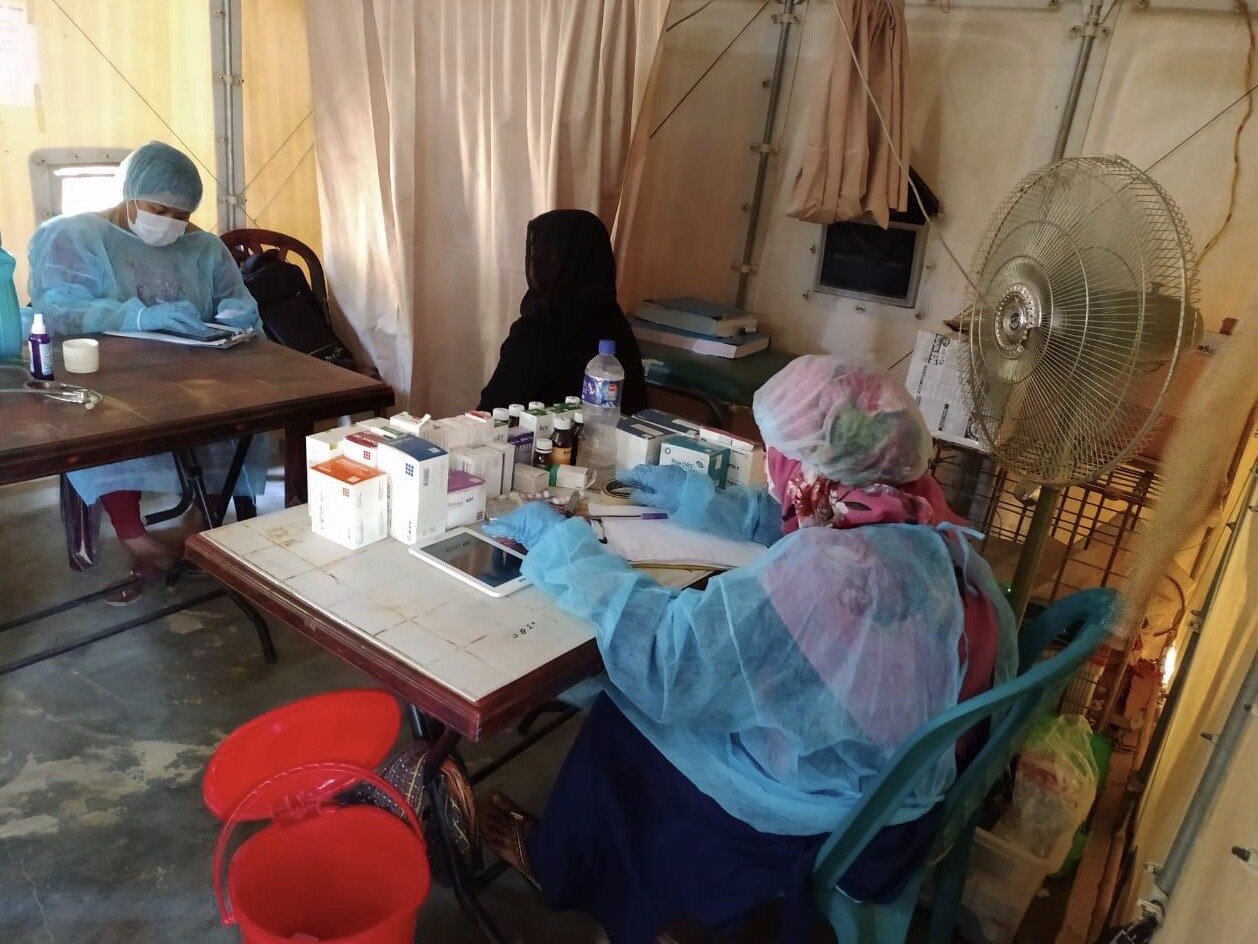
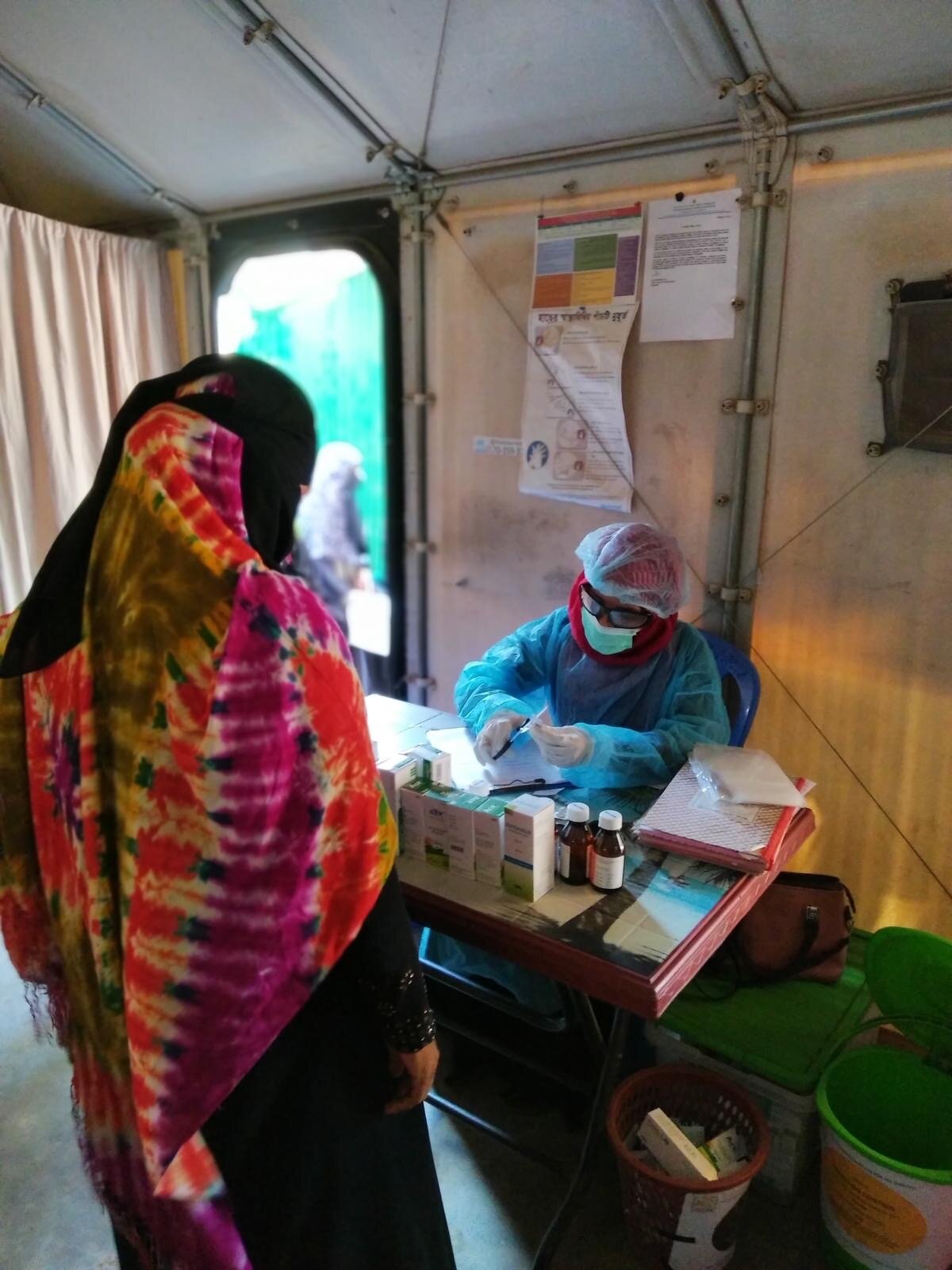
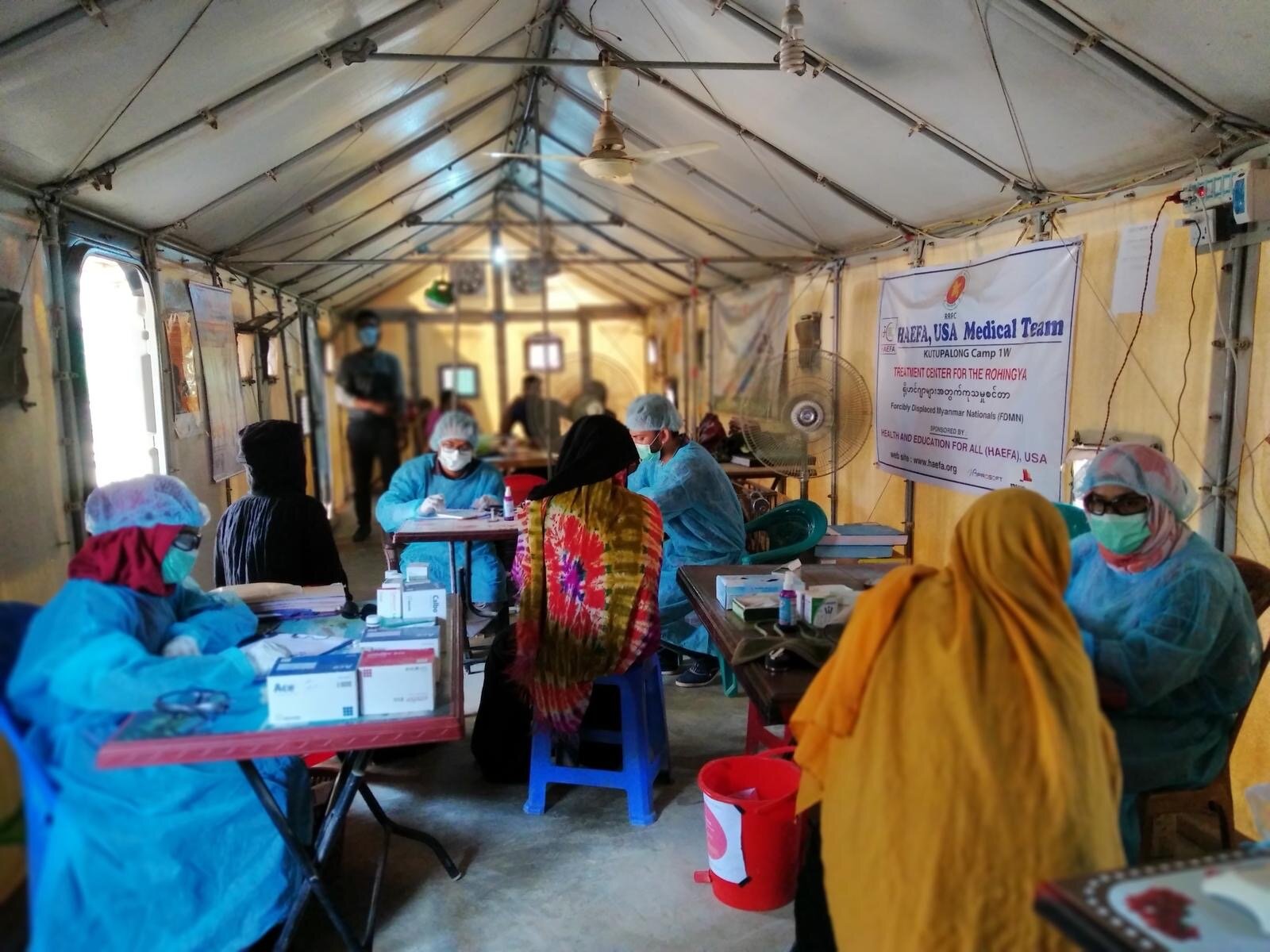
Last Updated August 1st, 2020
